Course: Oracle Database PL/SQL Programming
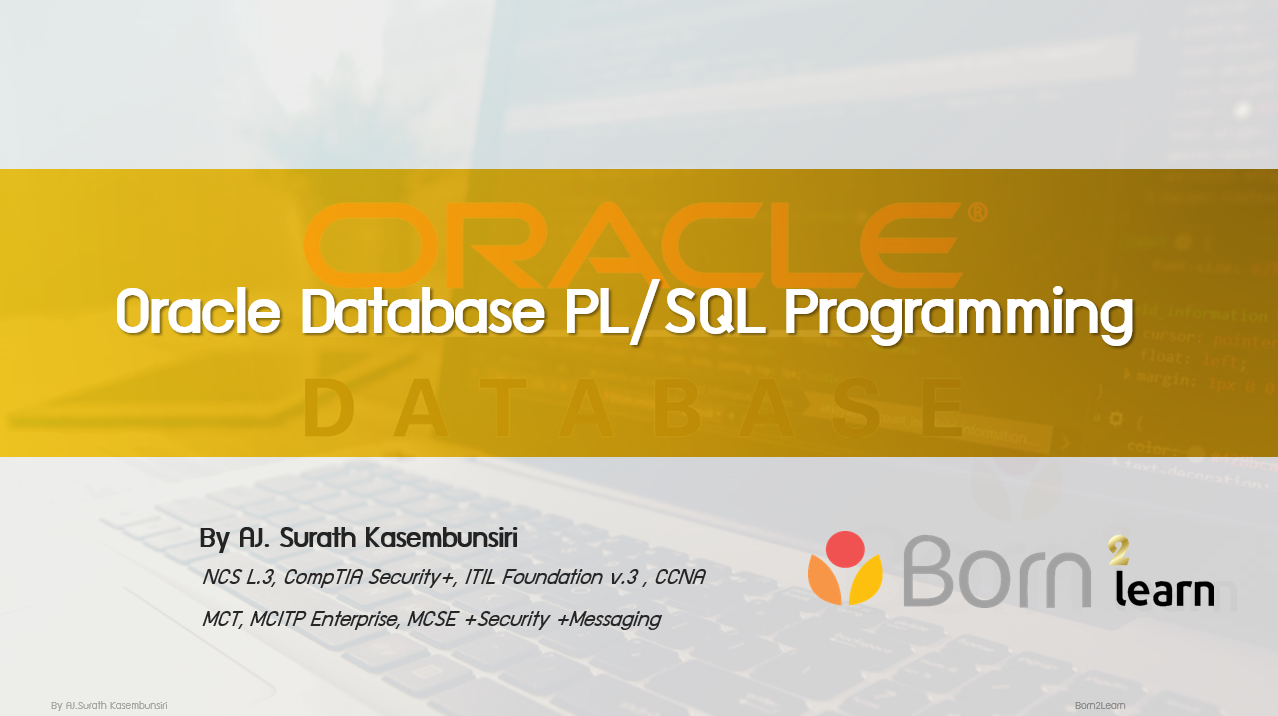
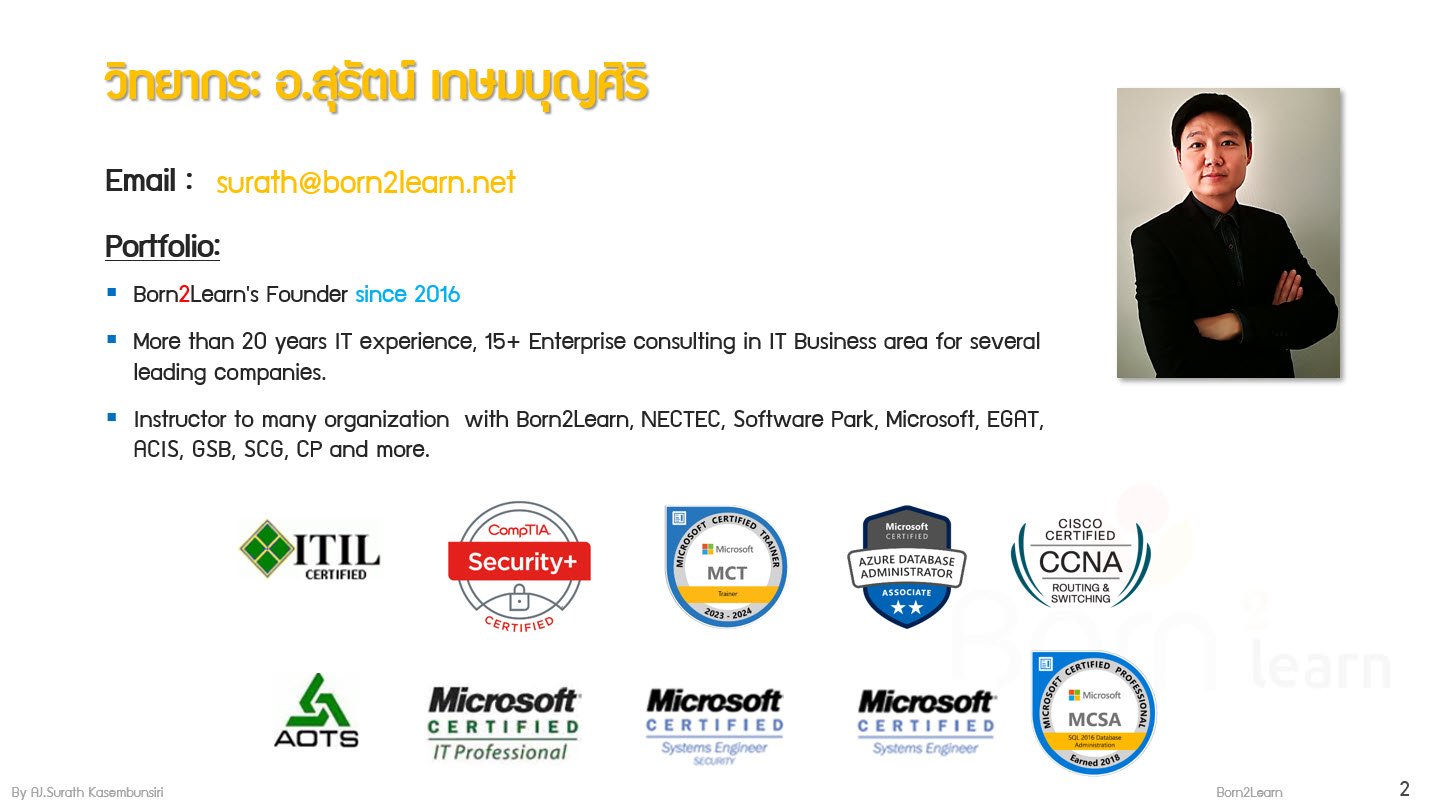
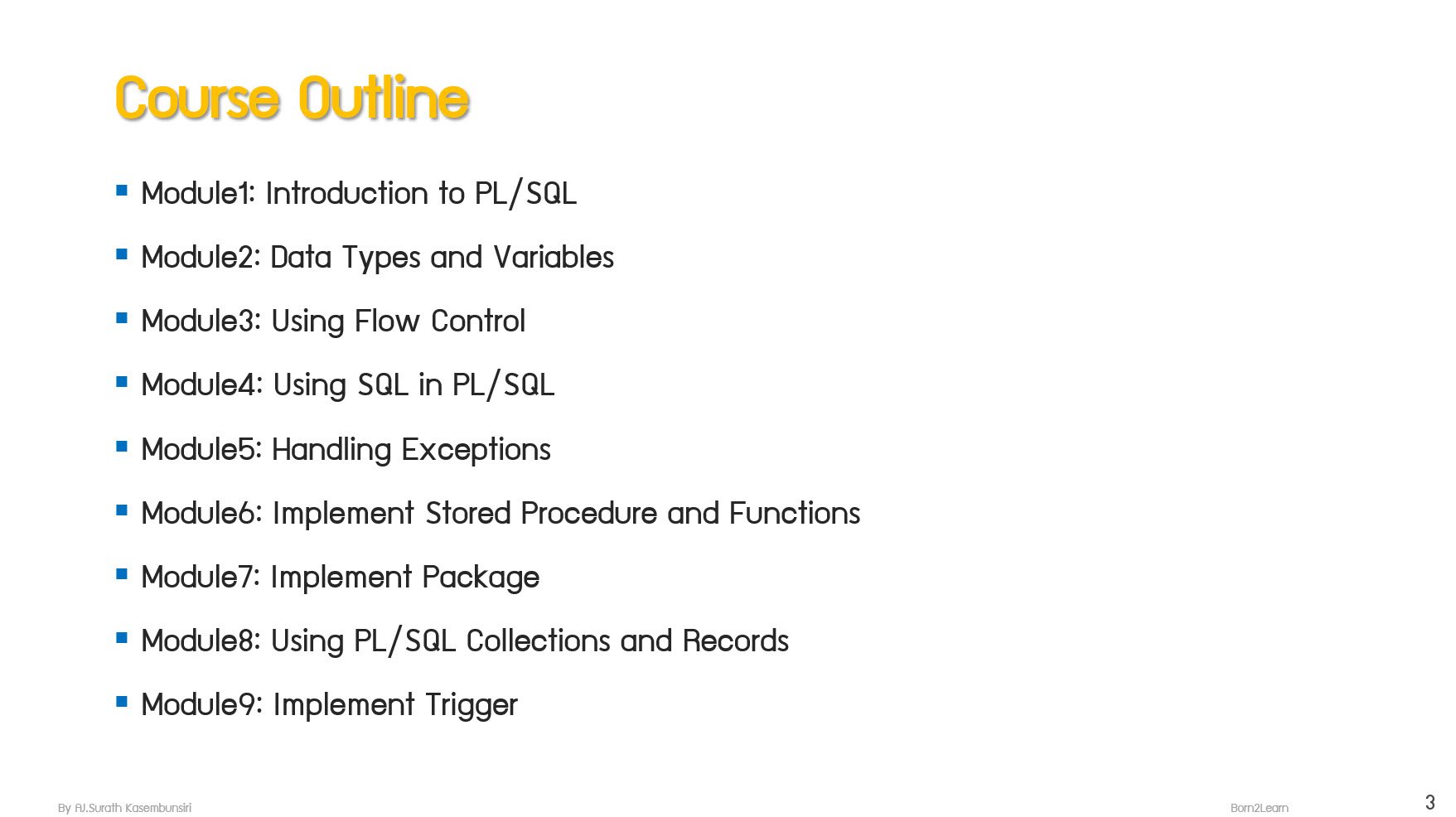
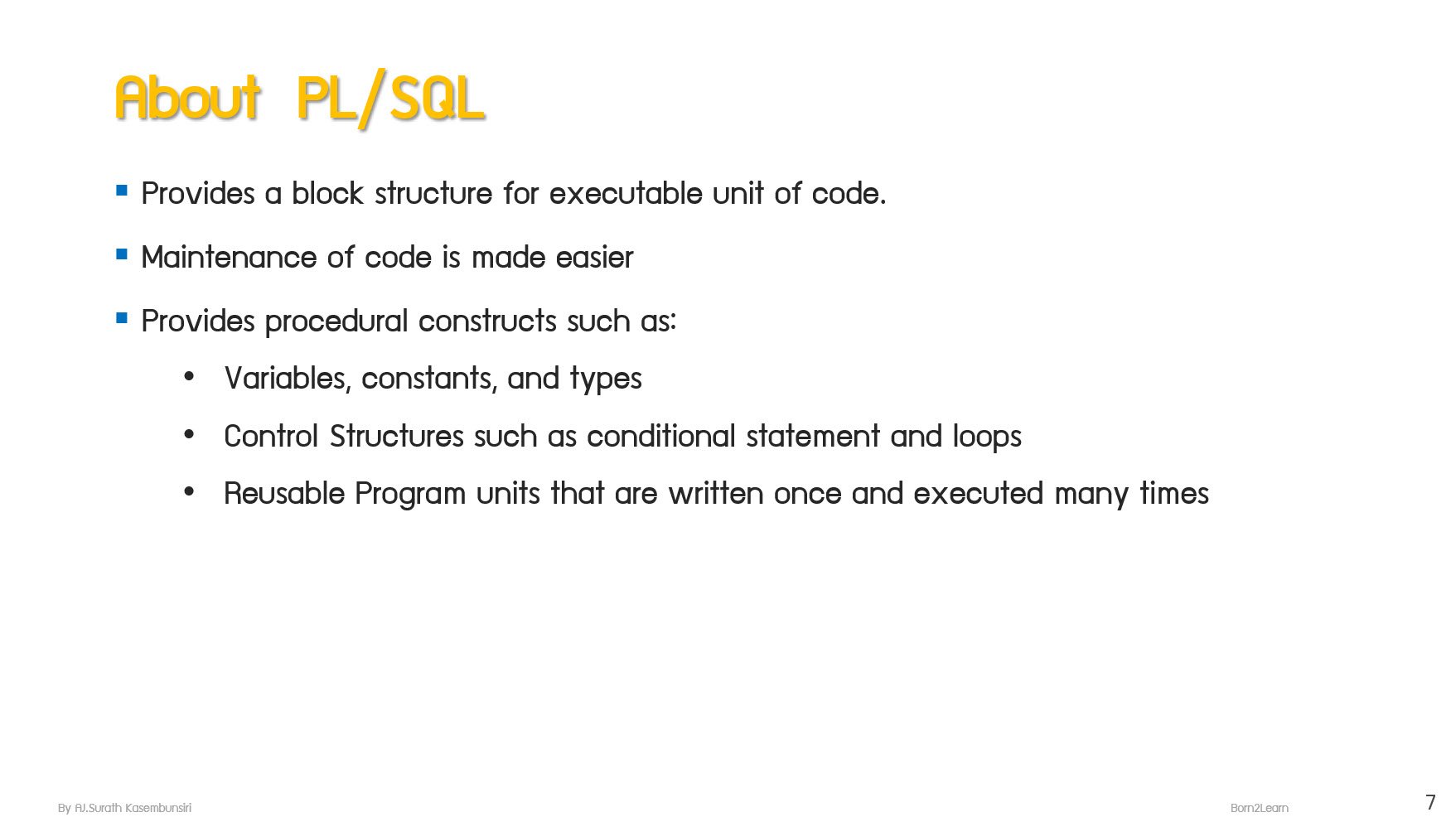
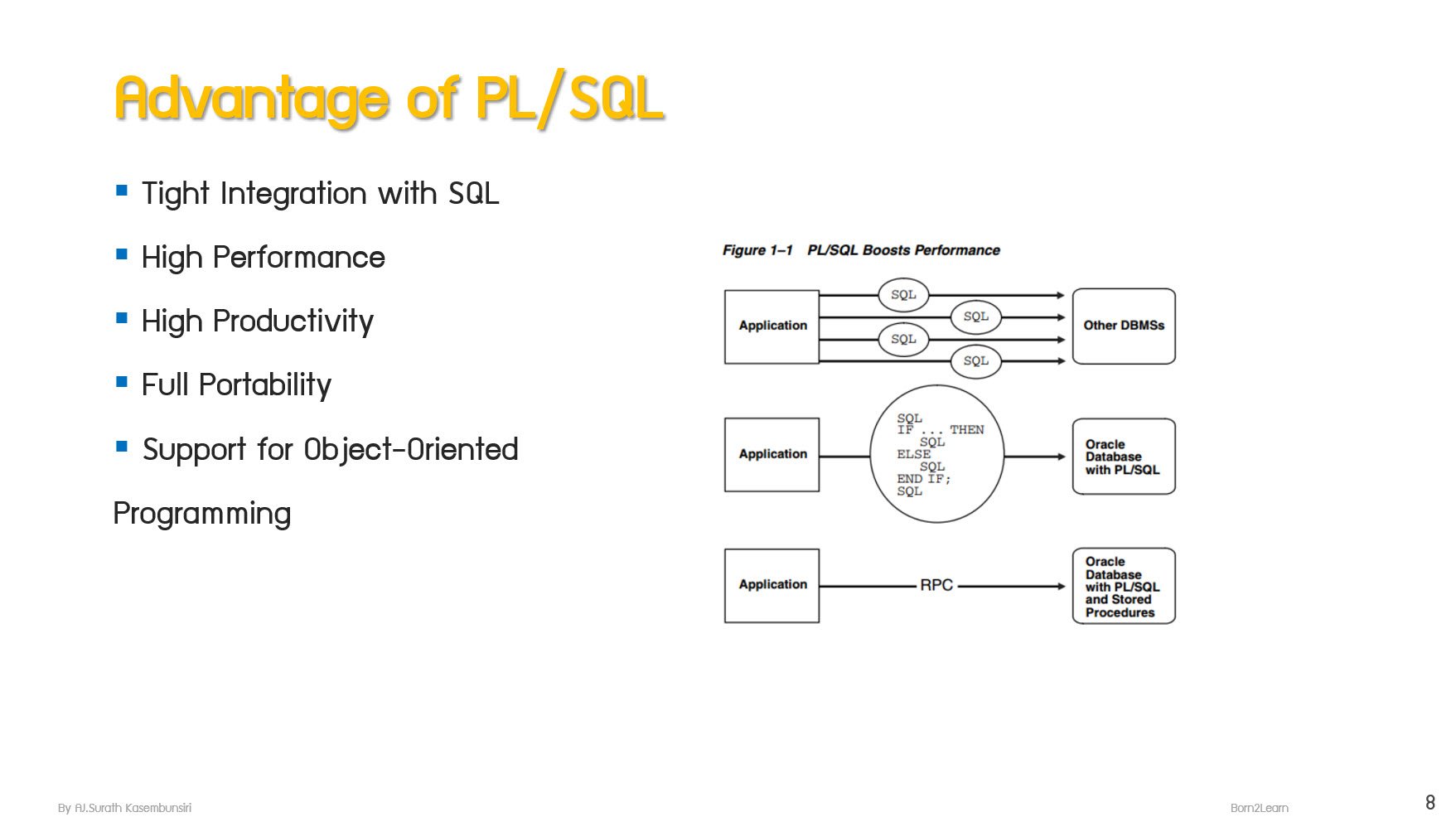
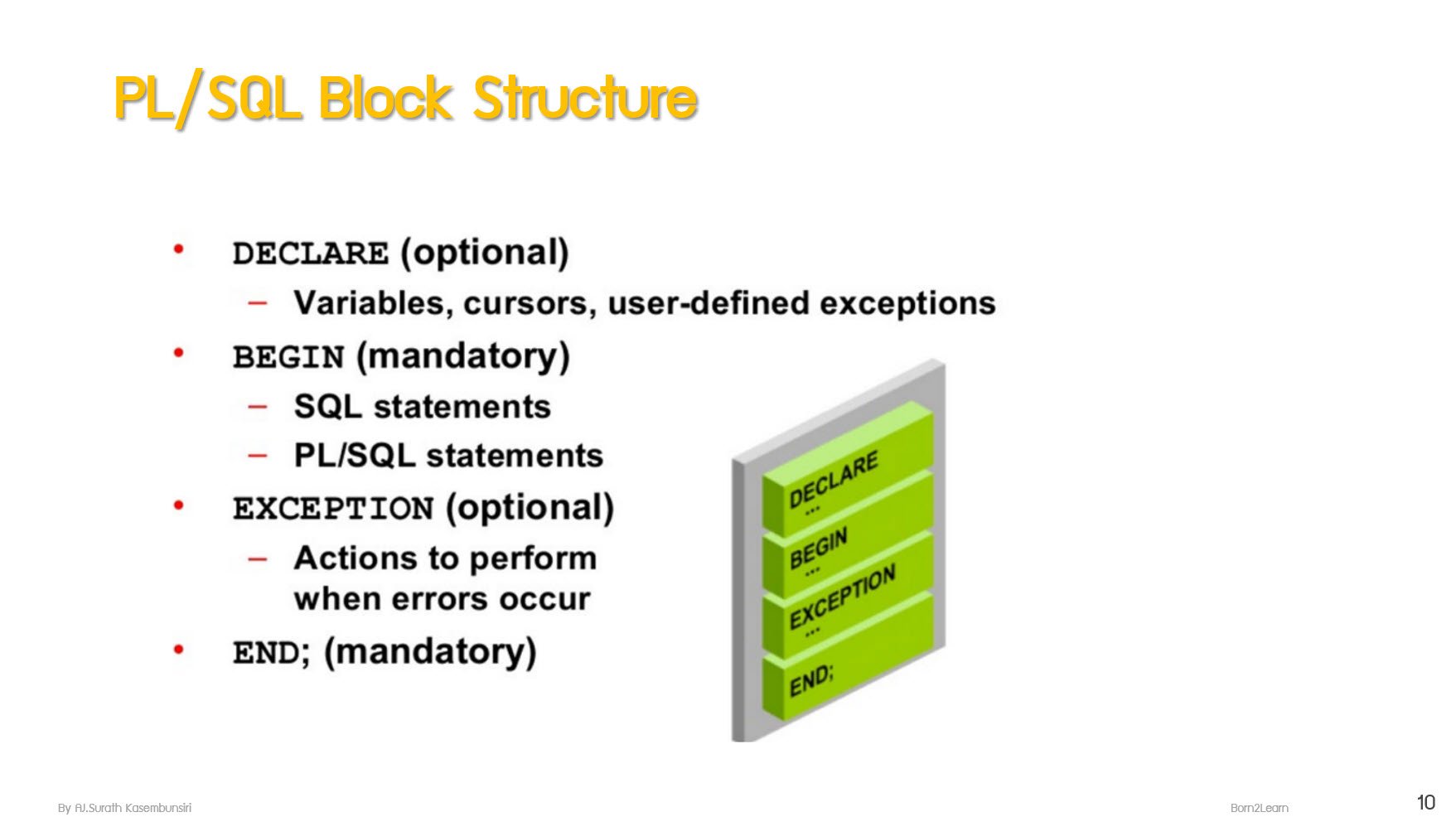
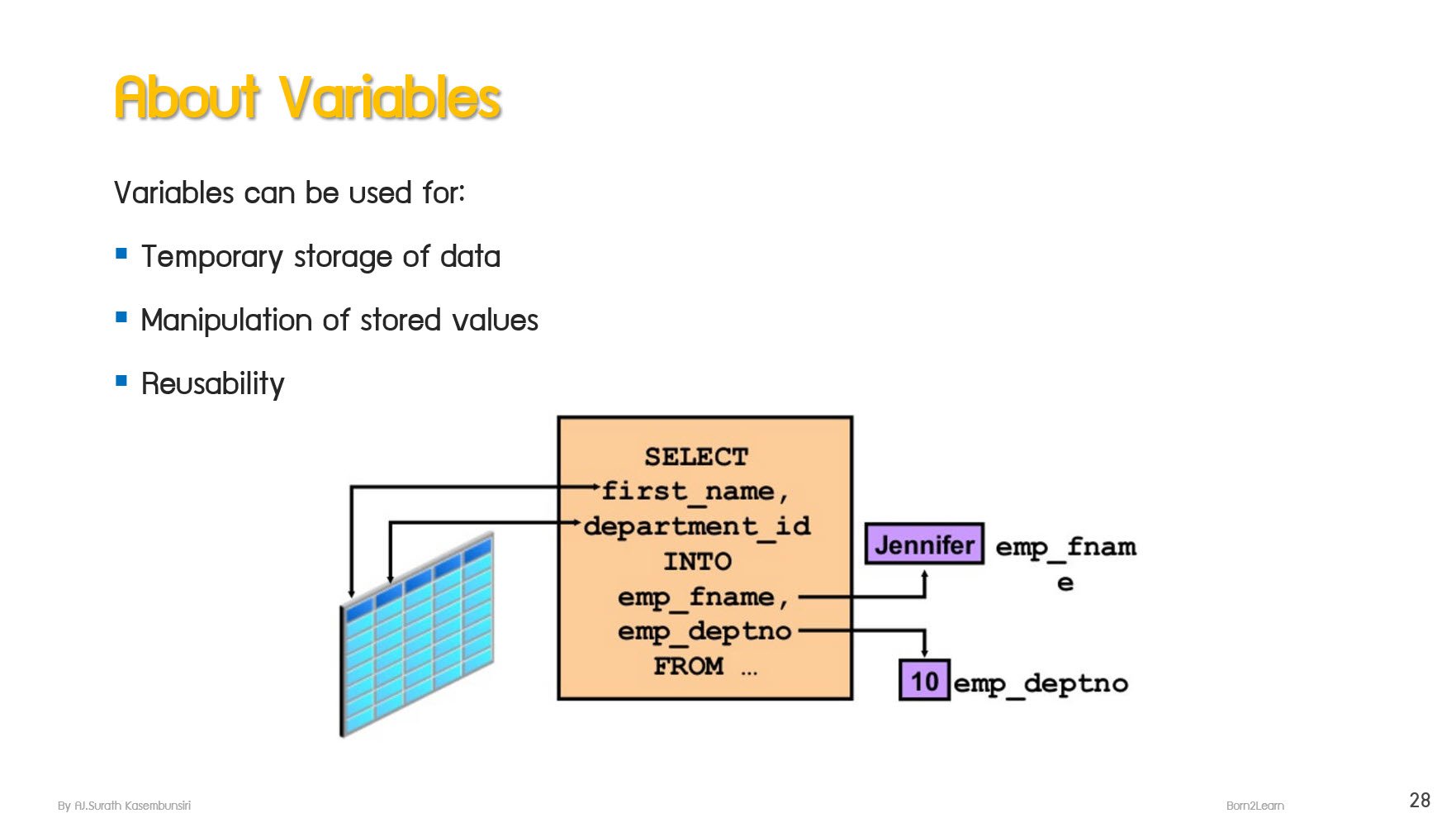
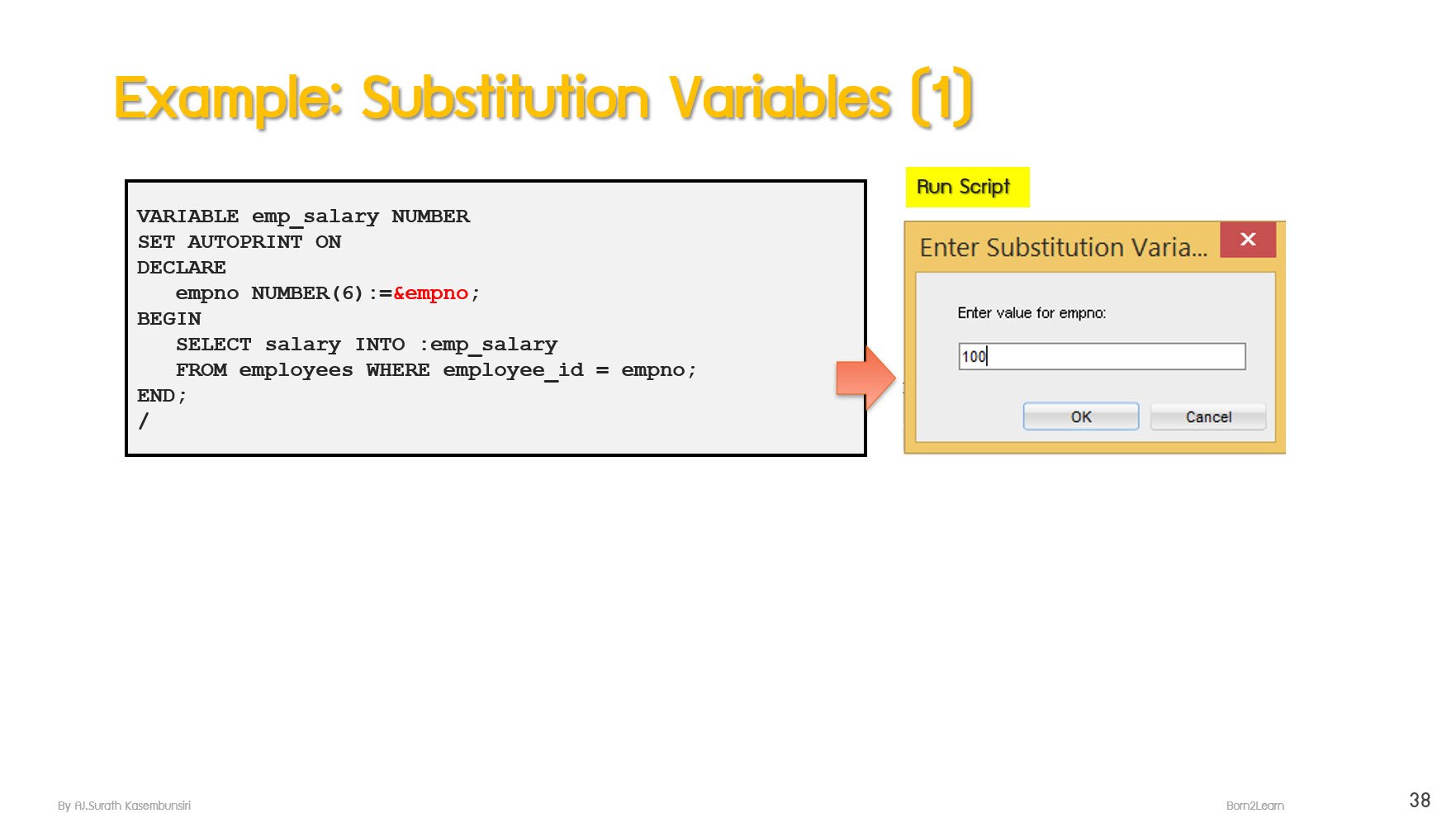
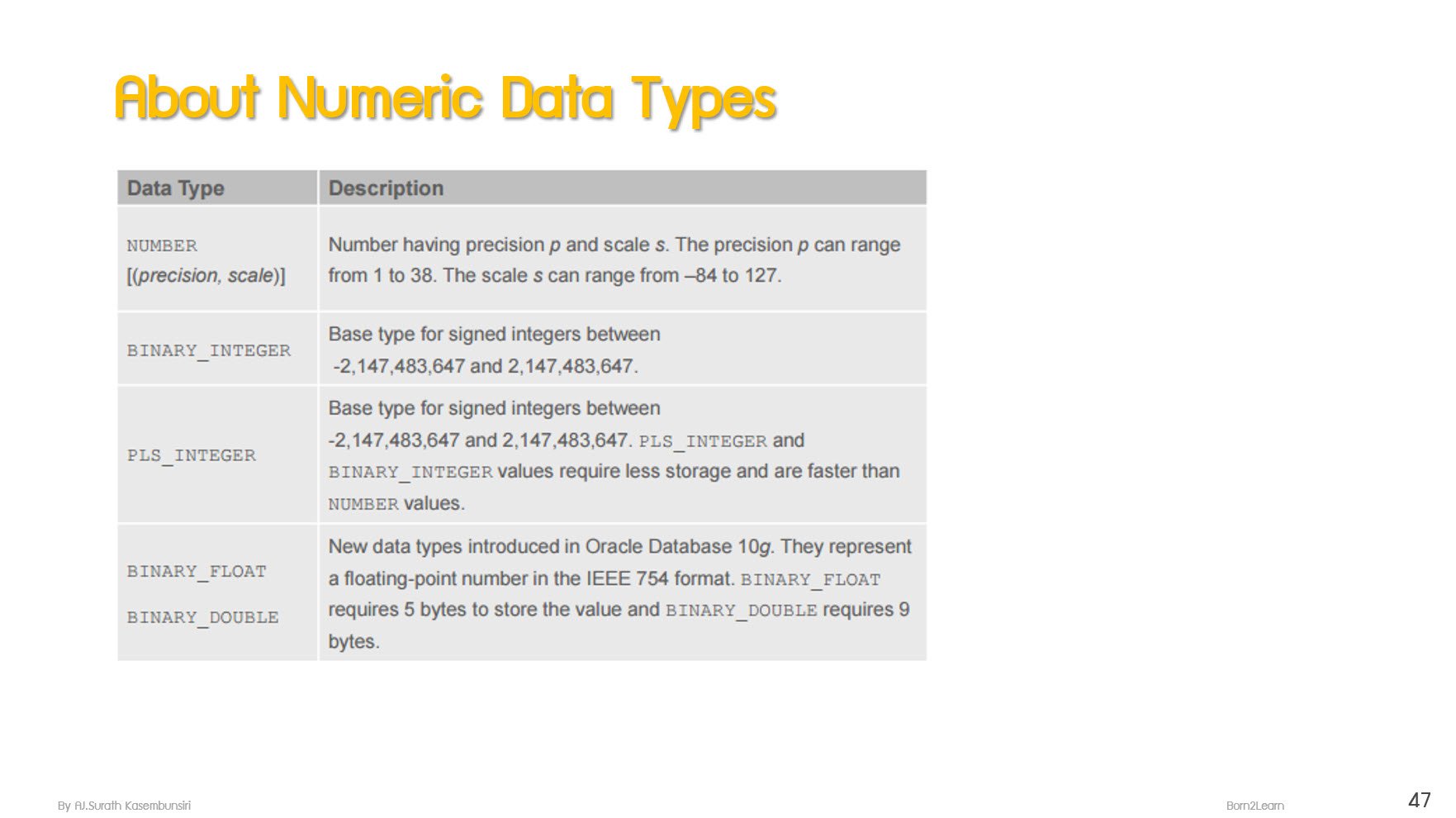
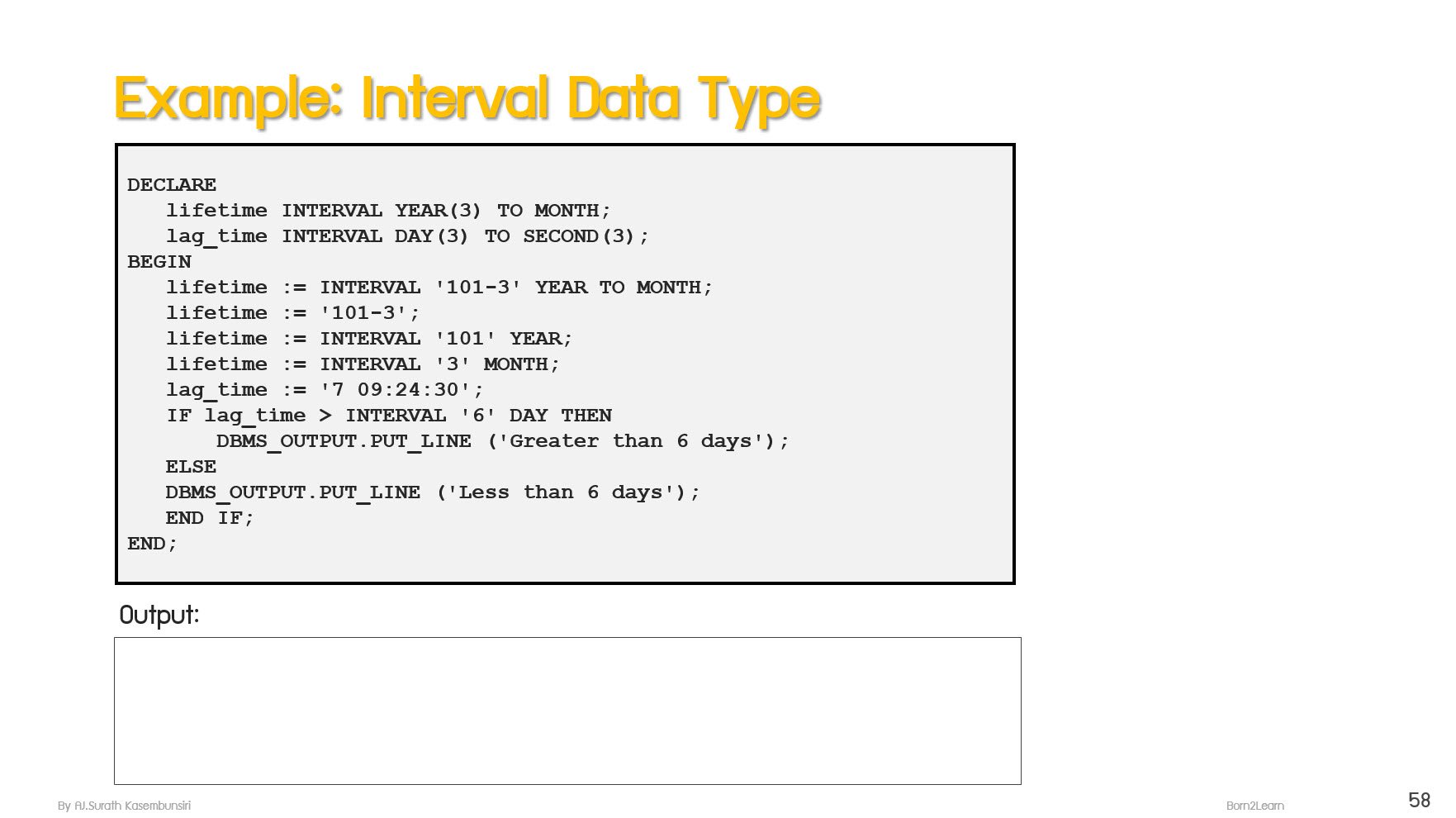
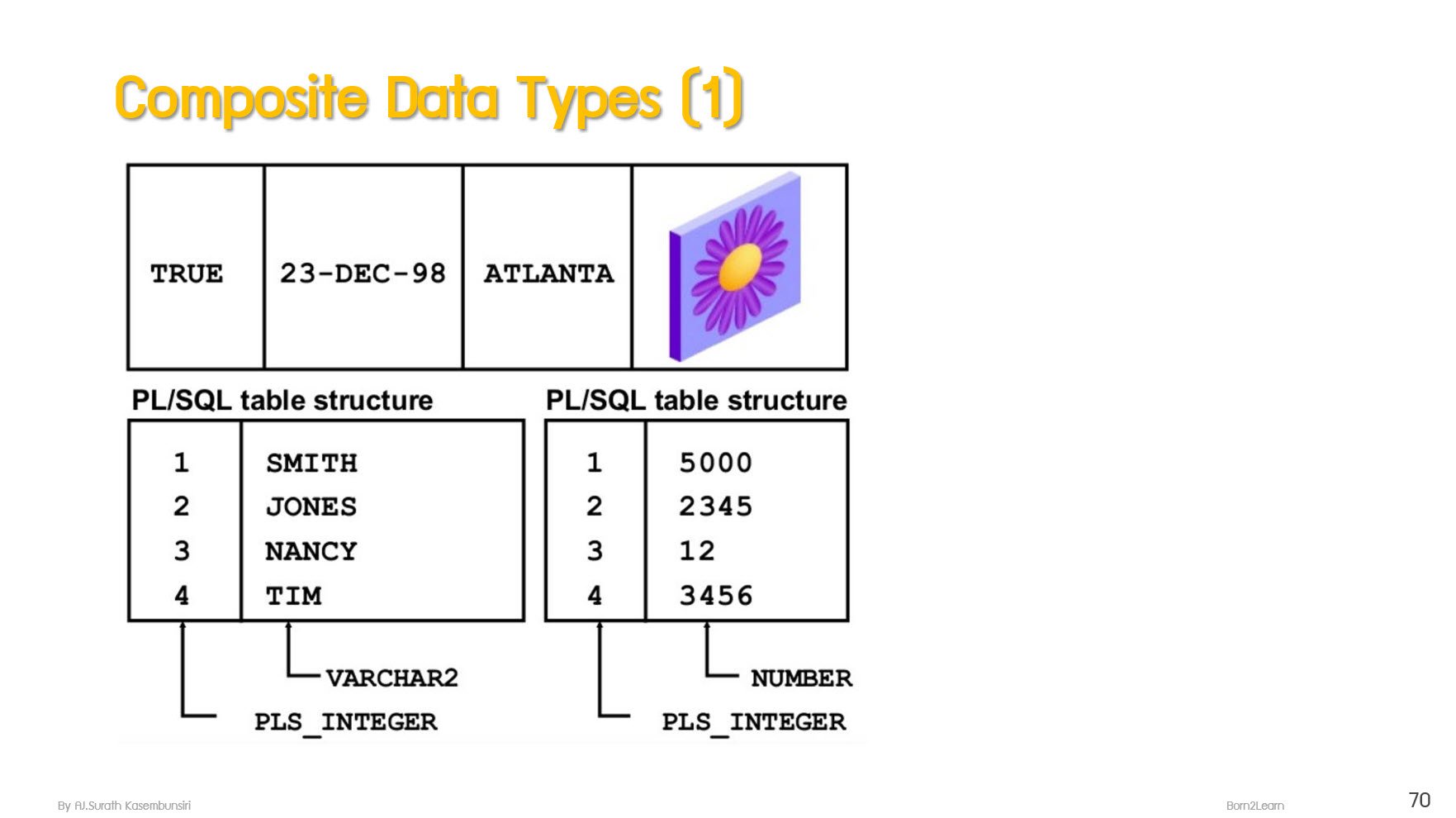
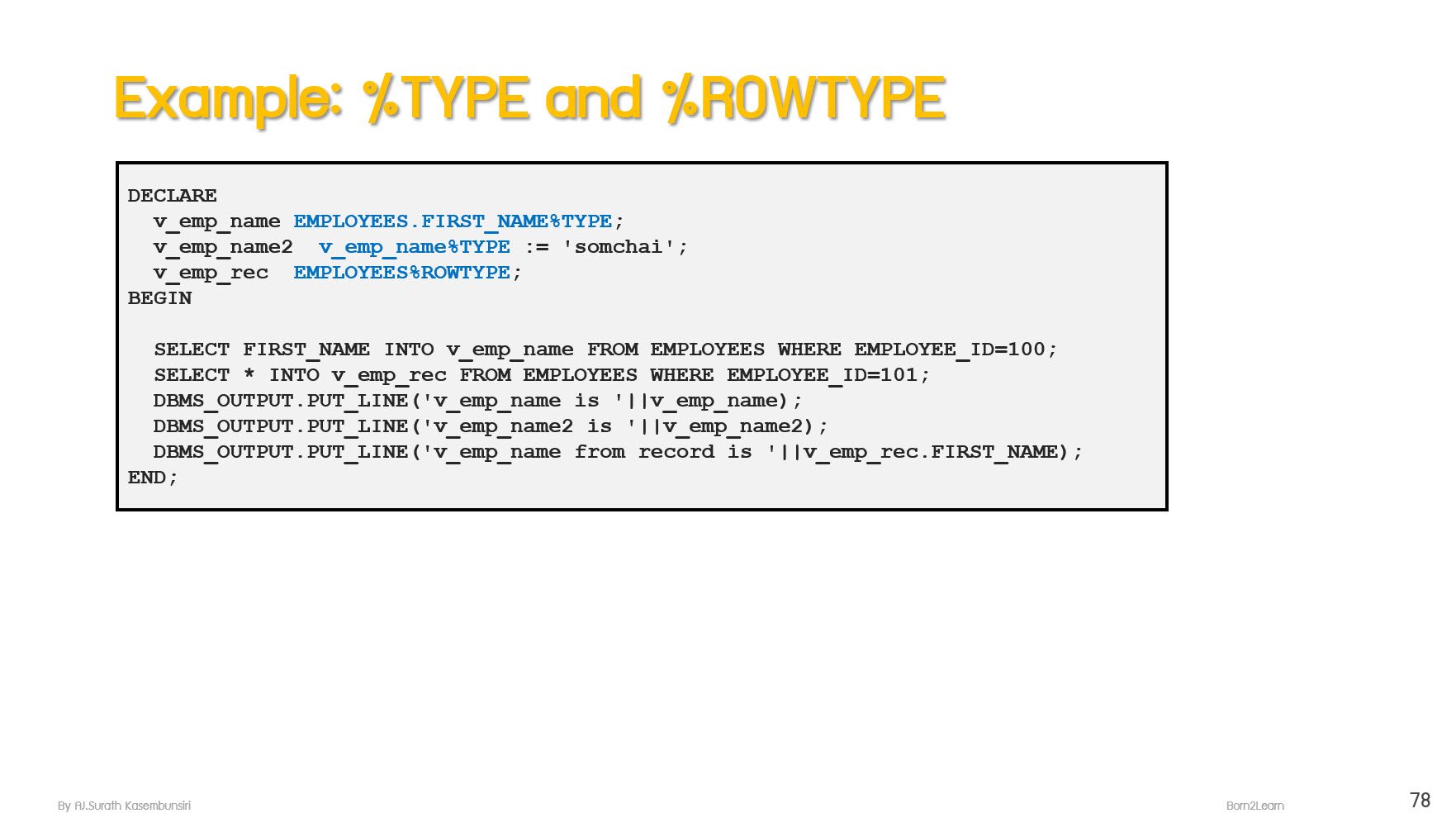
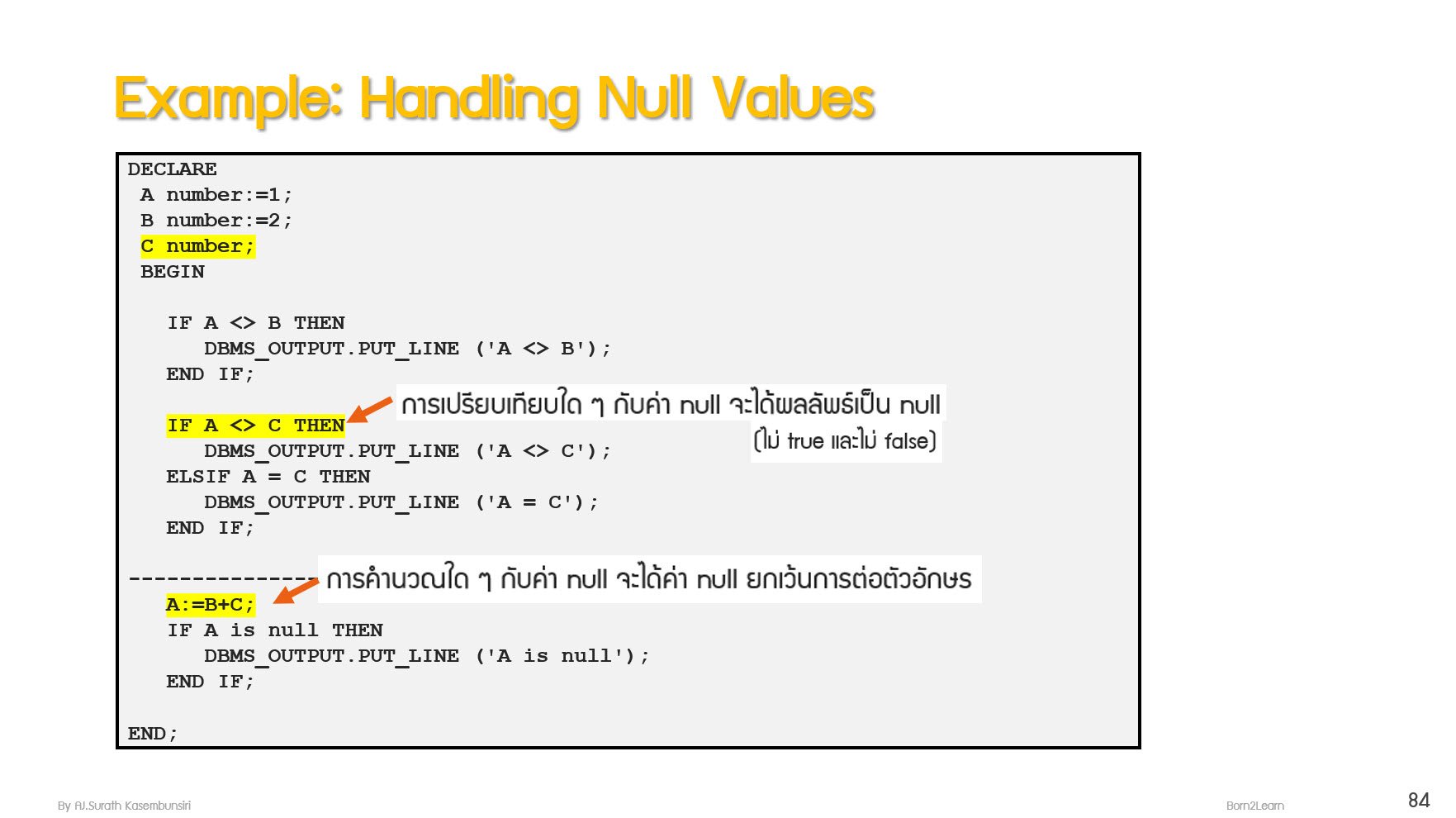
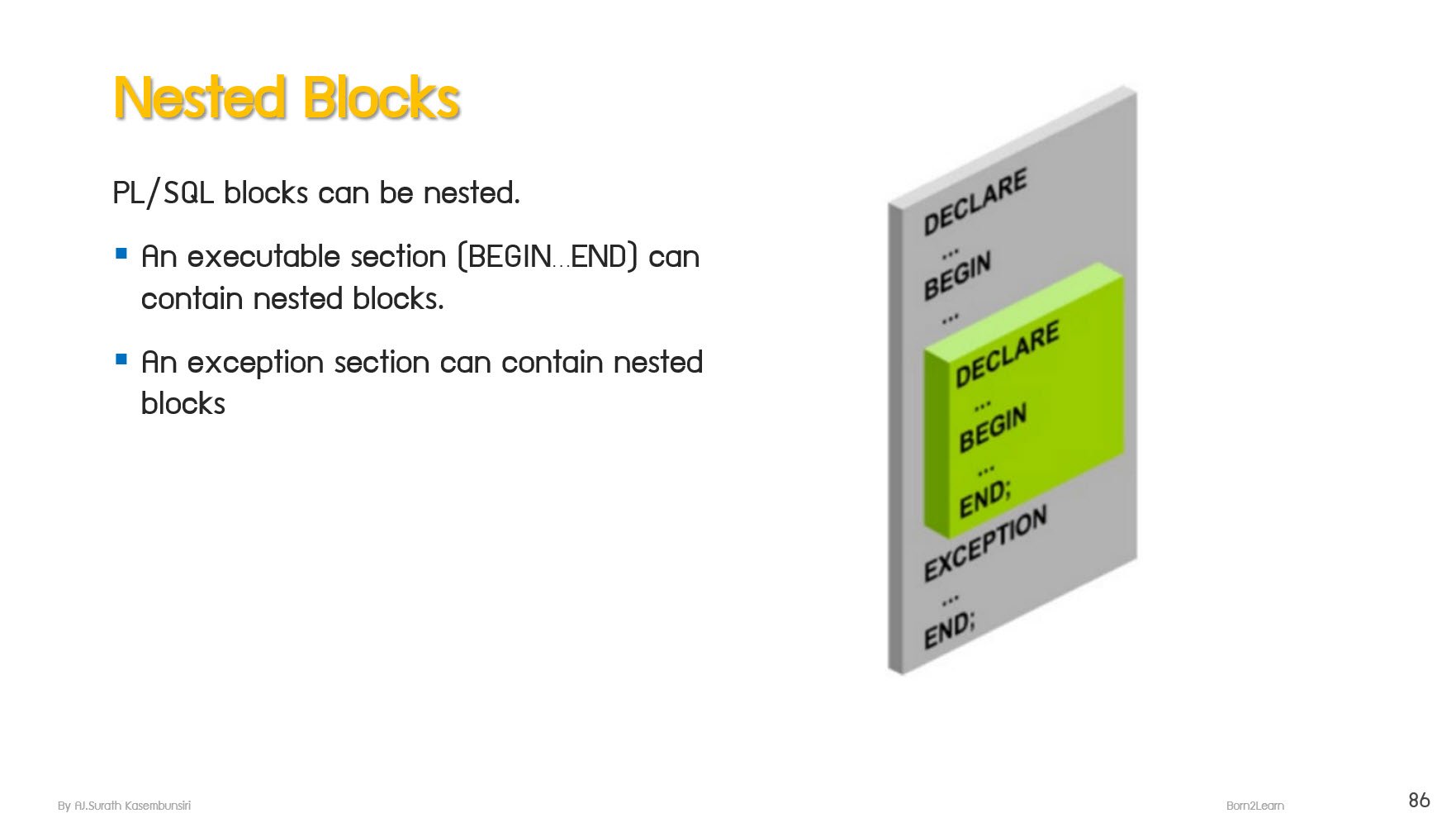
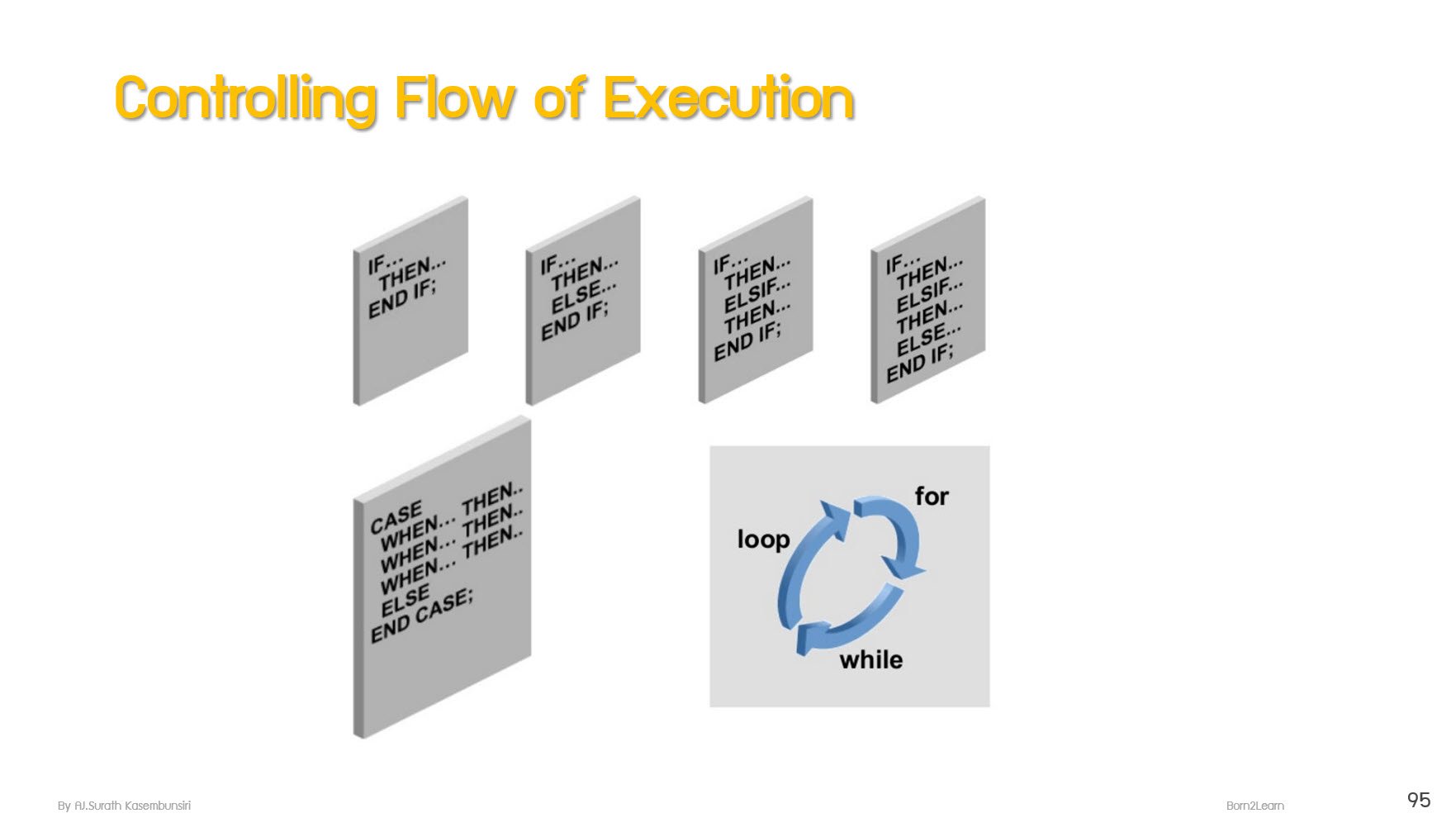
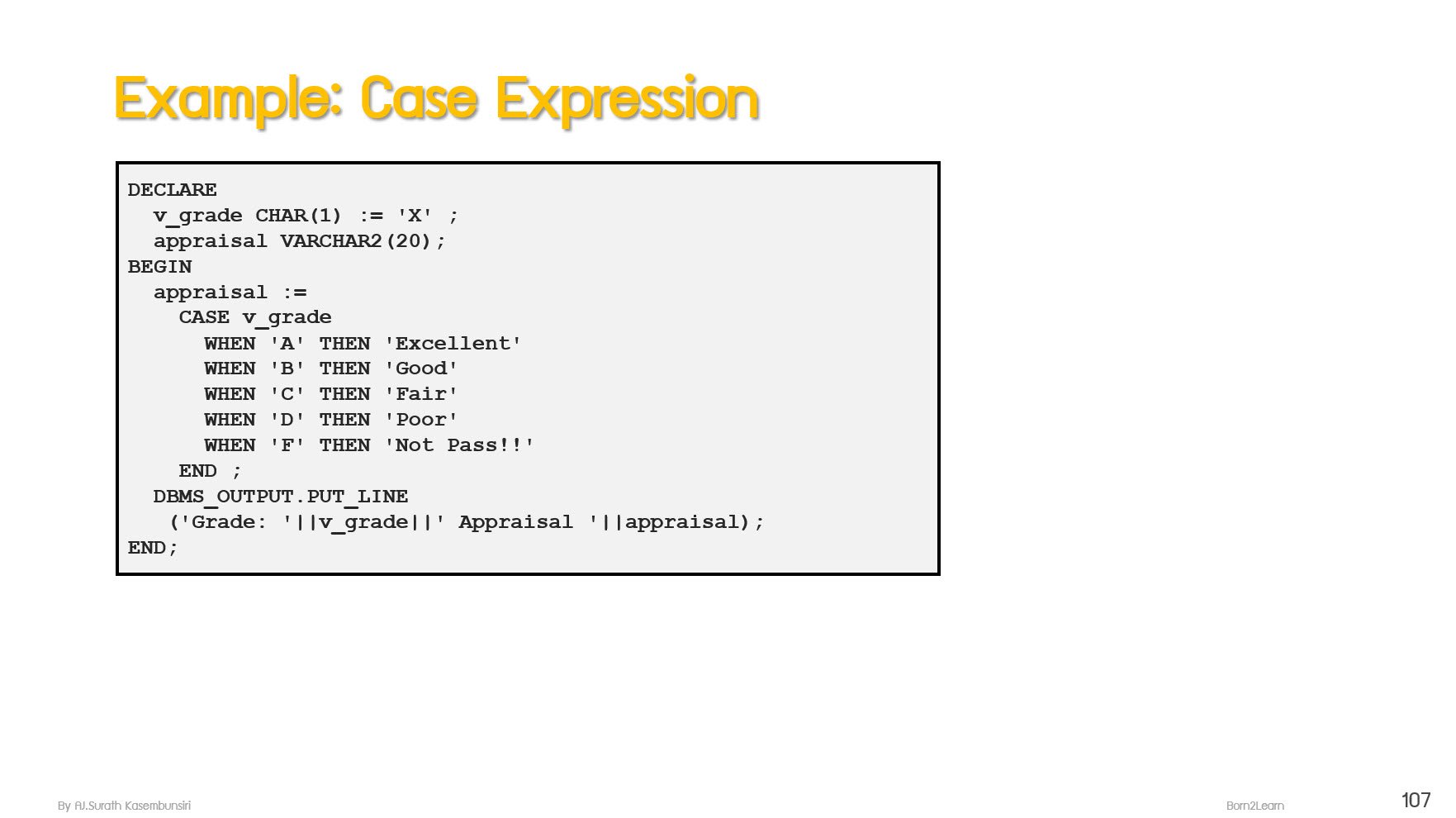
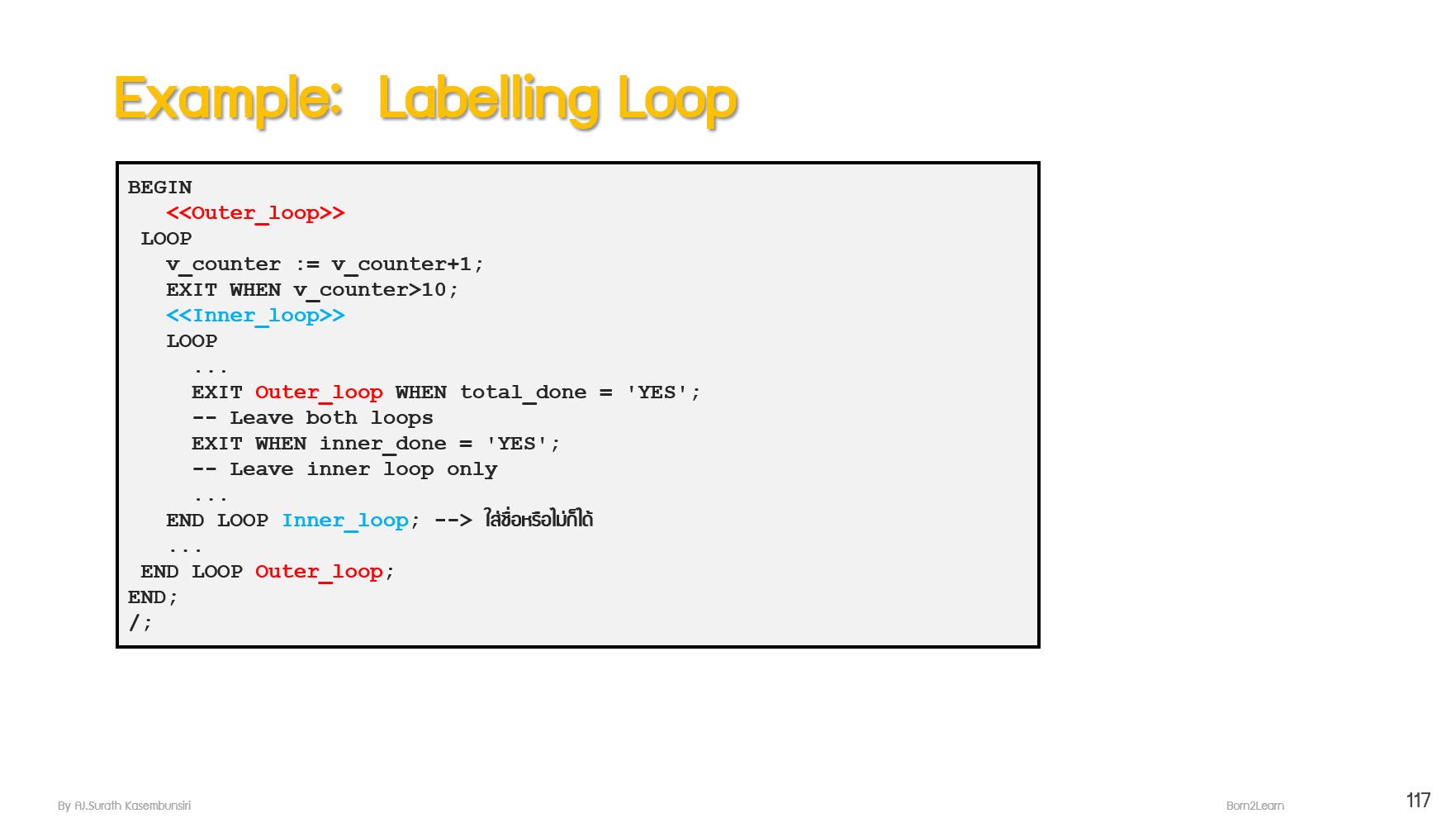
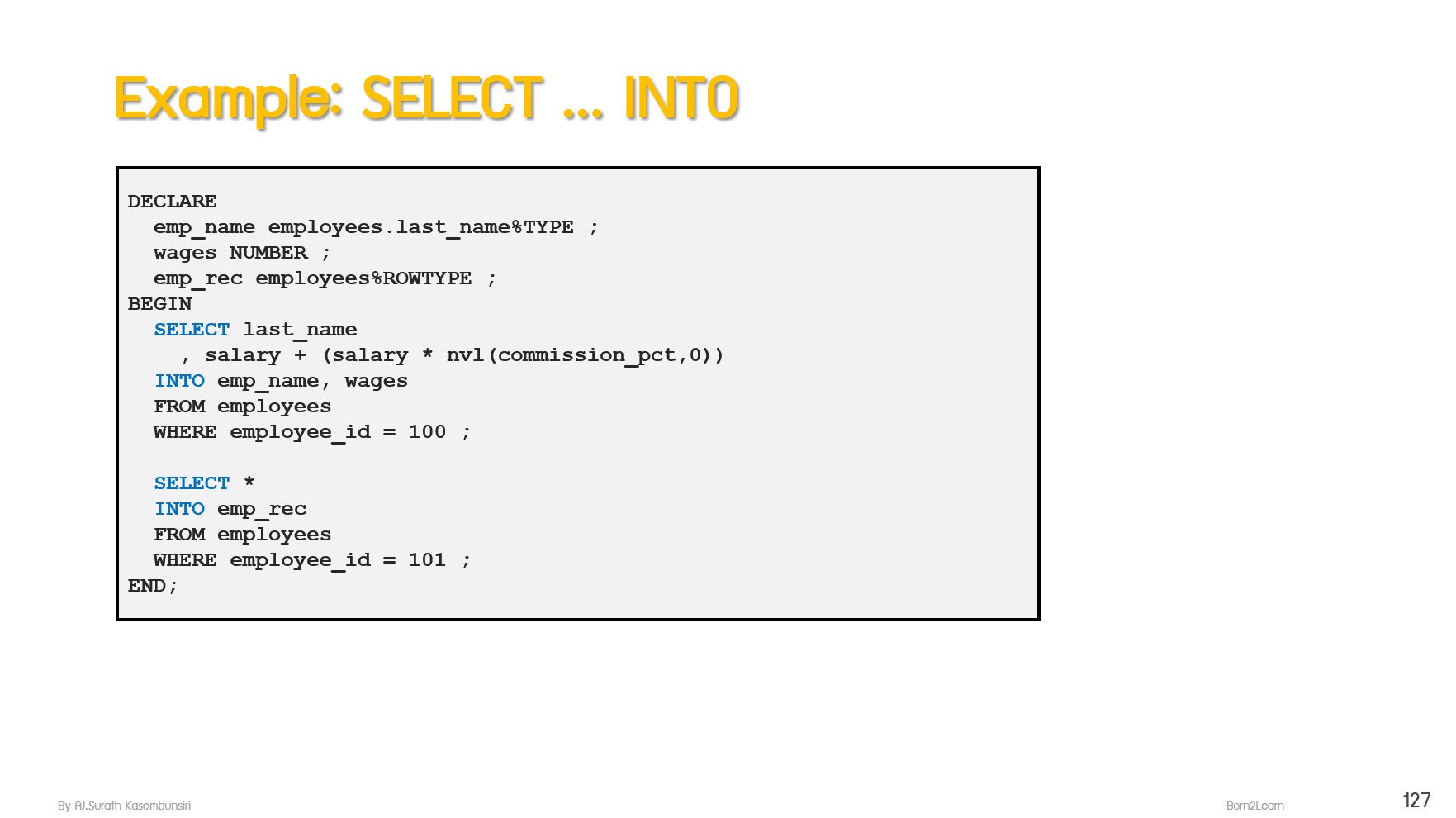
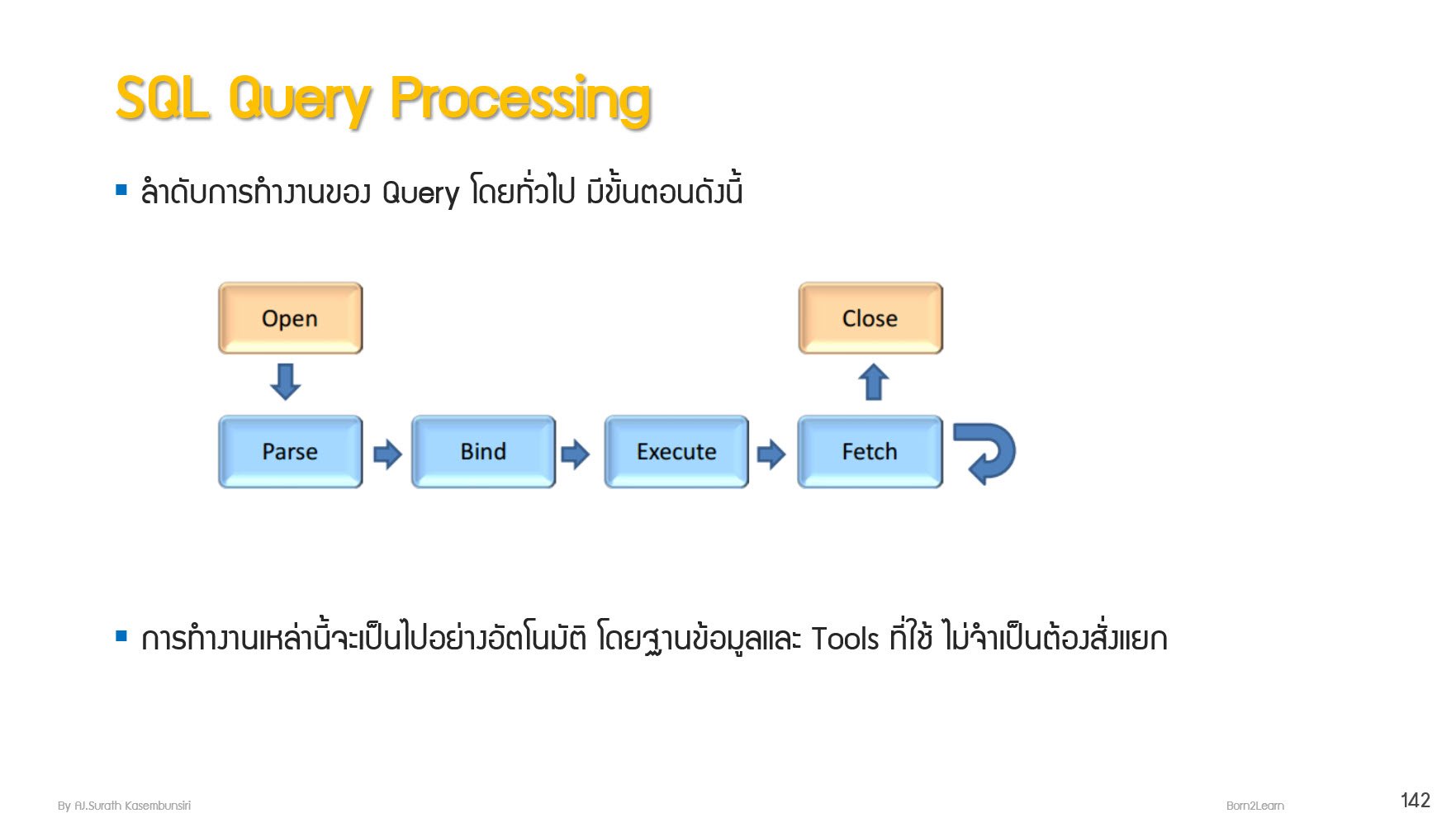
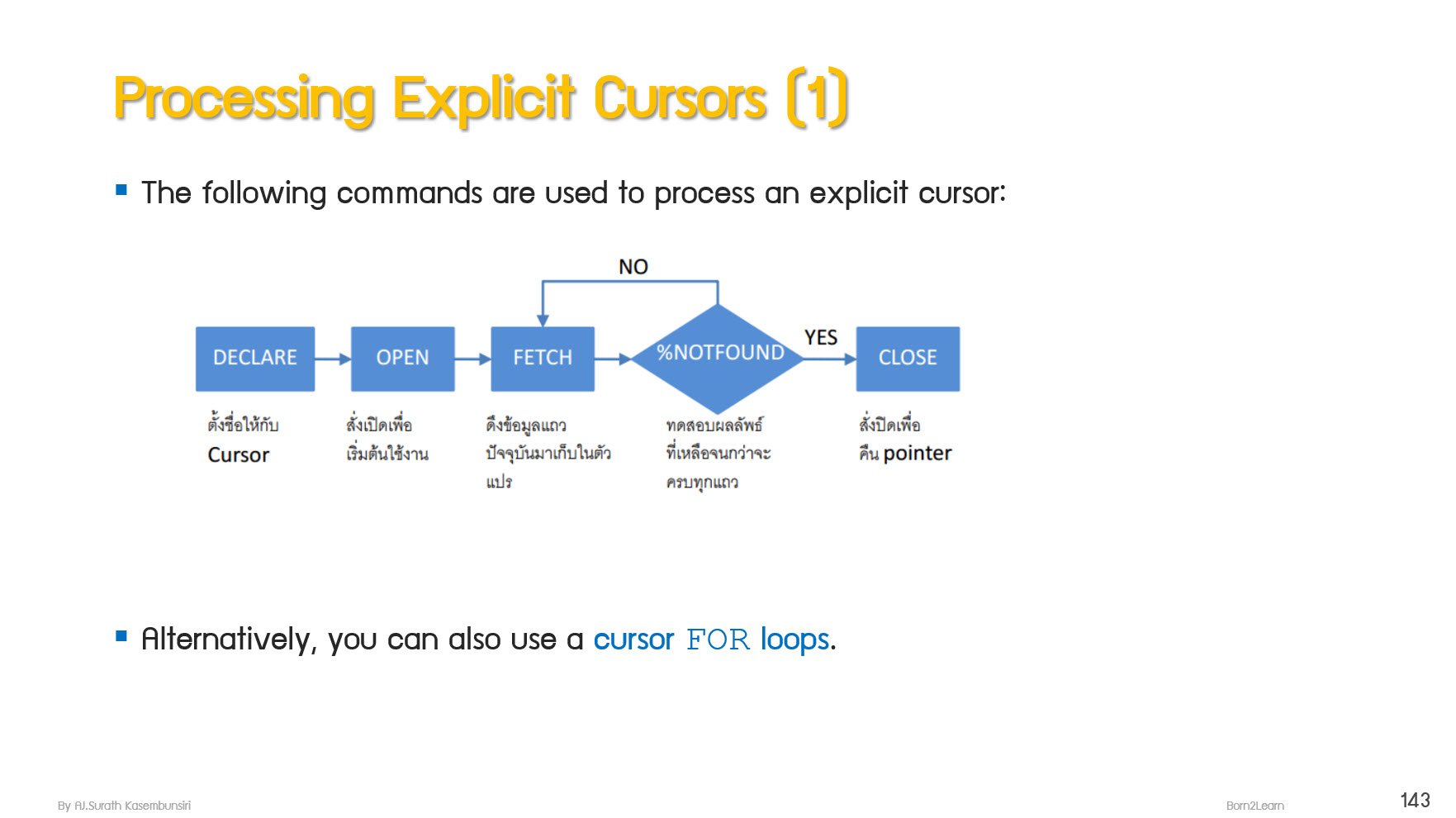
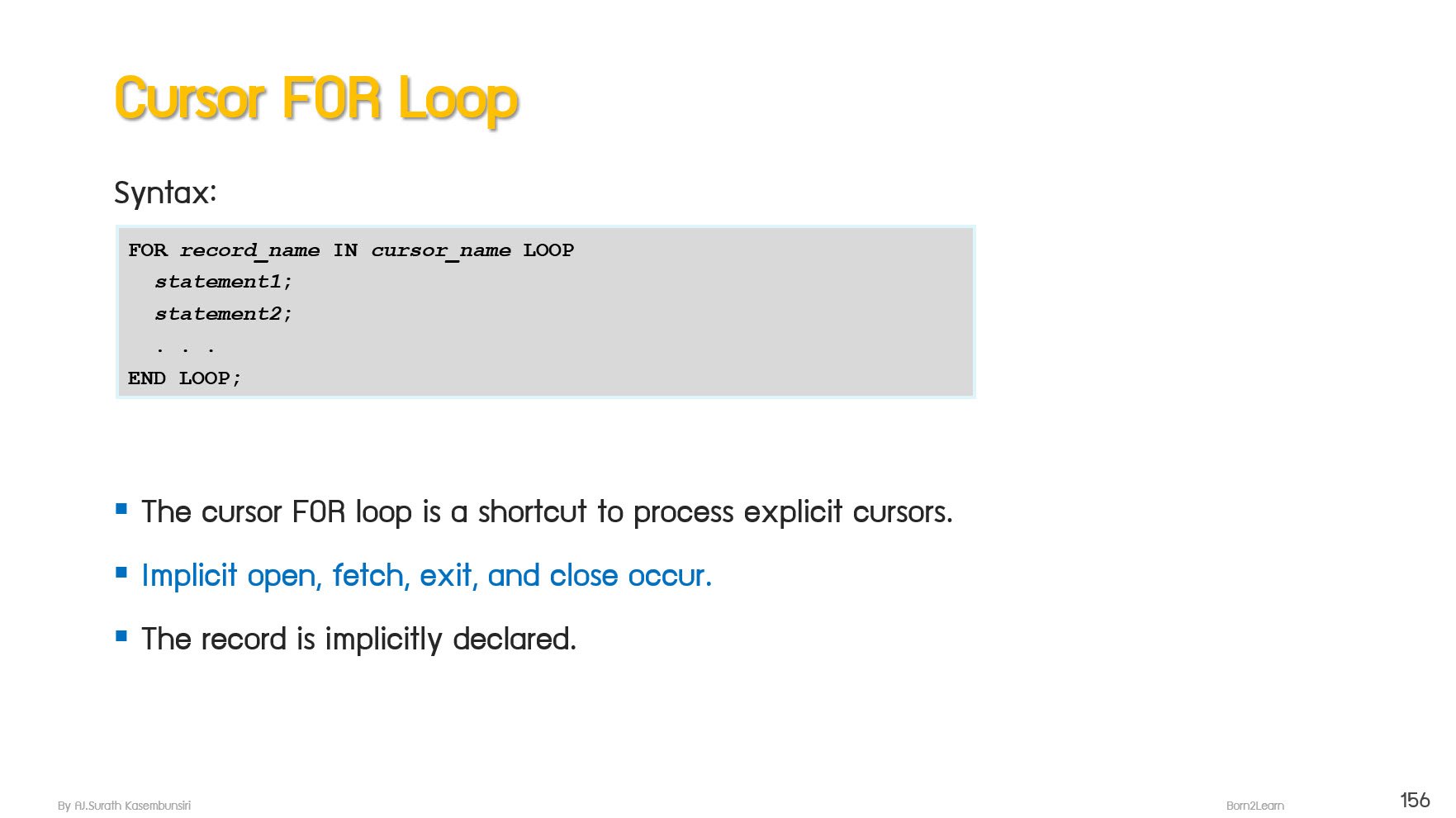
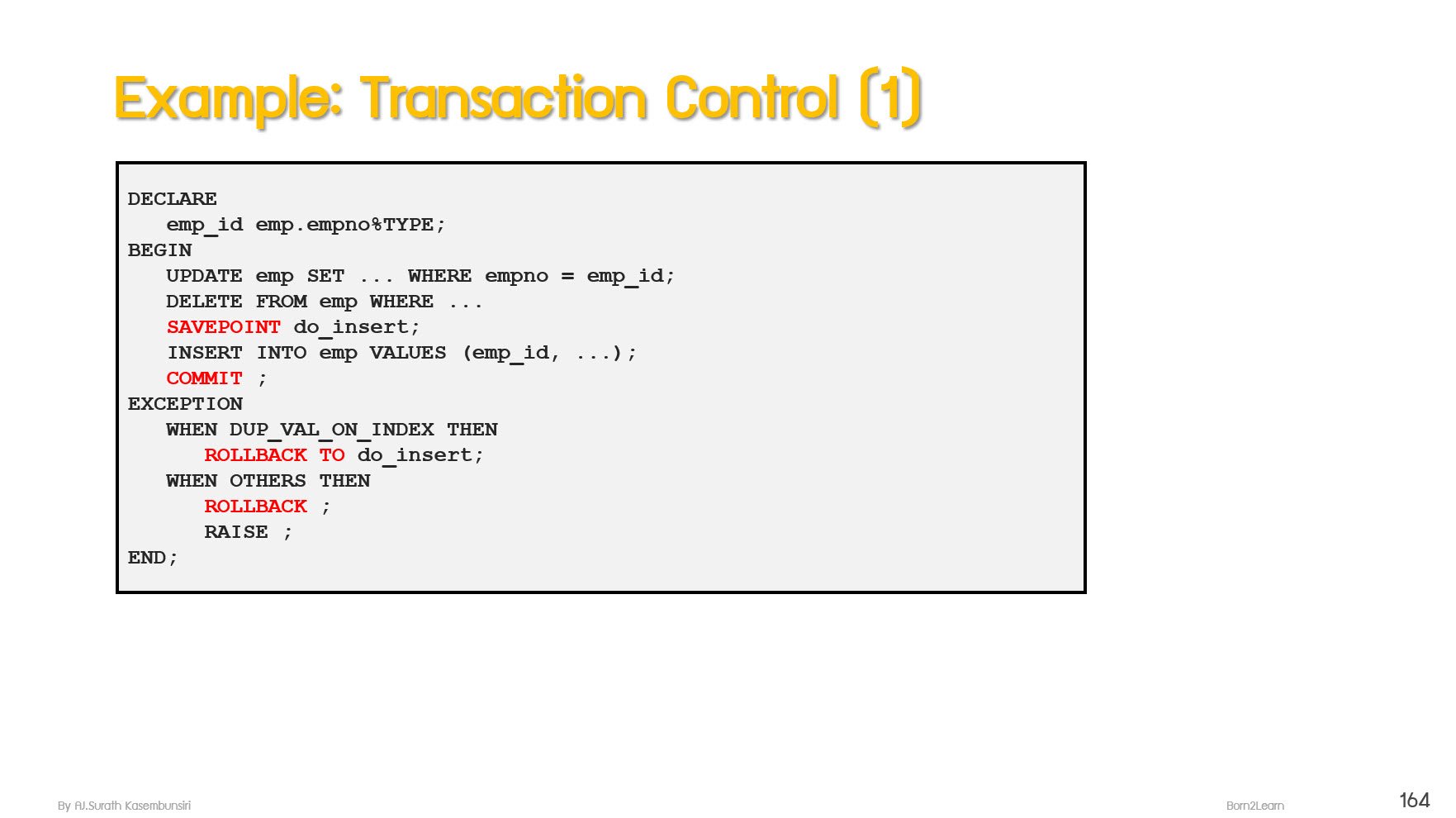
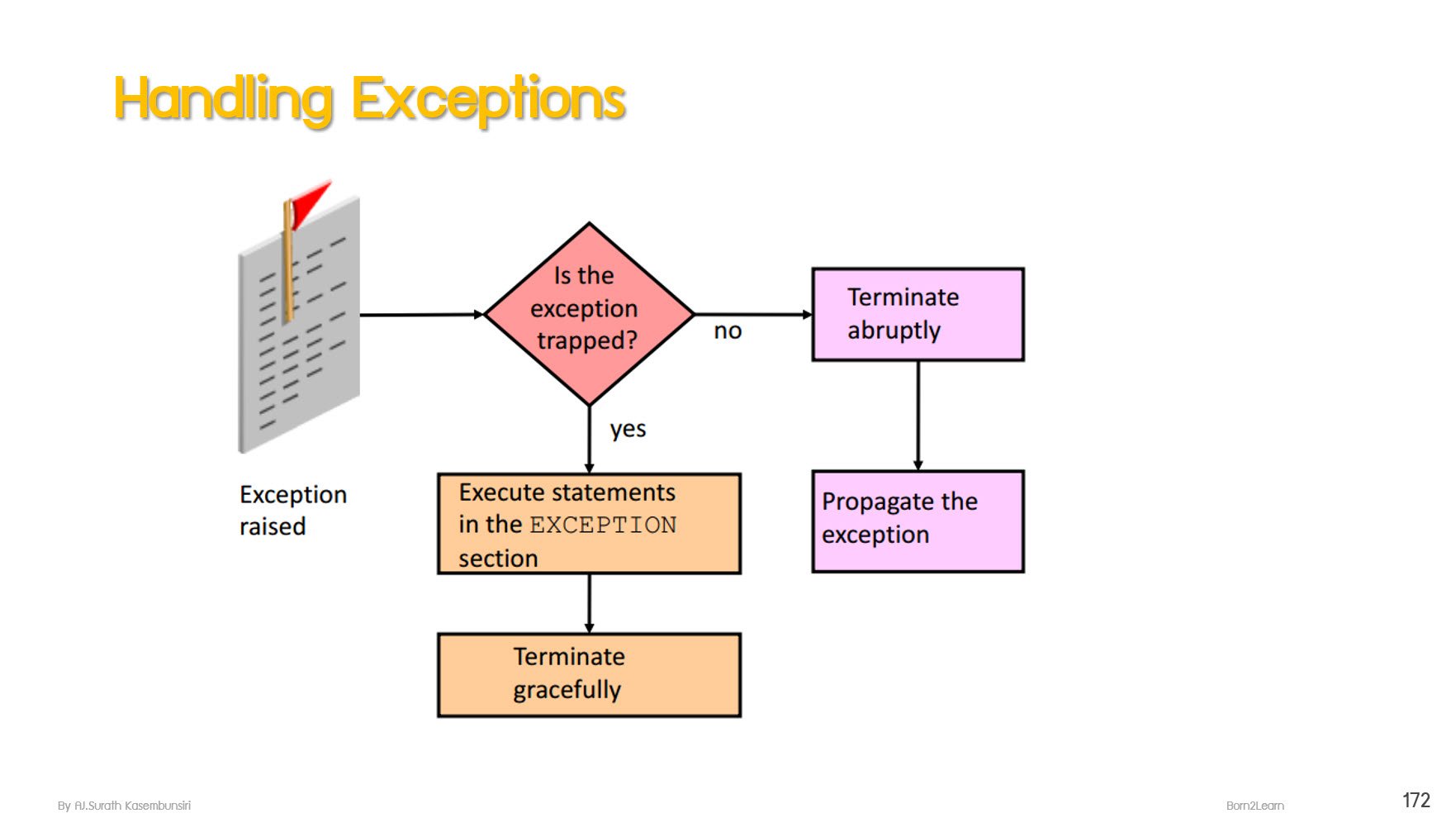
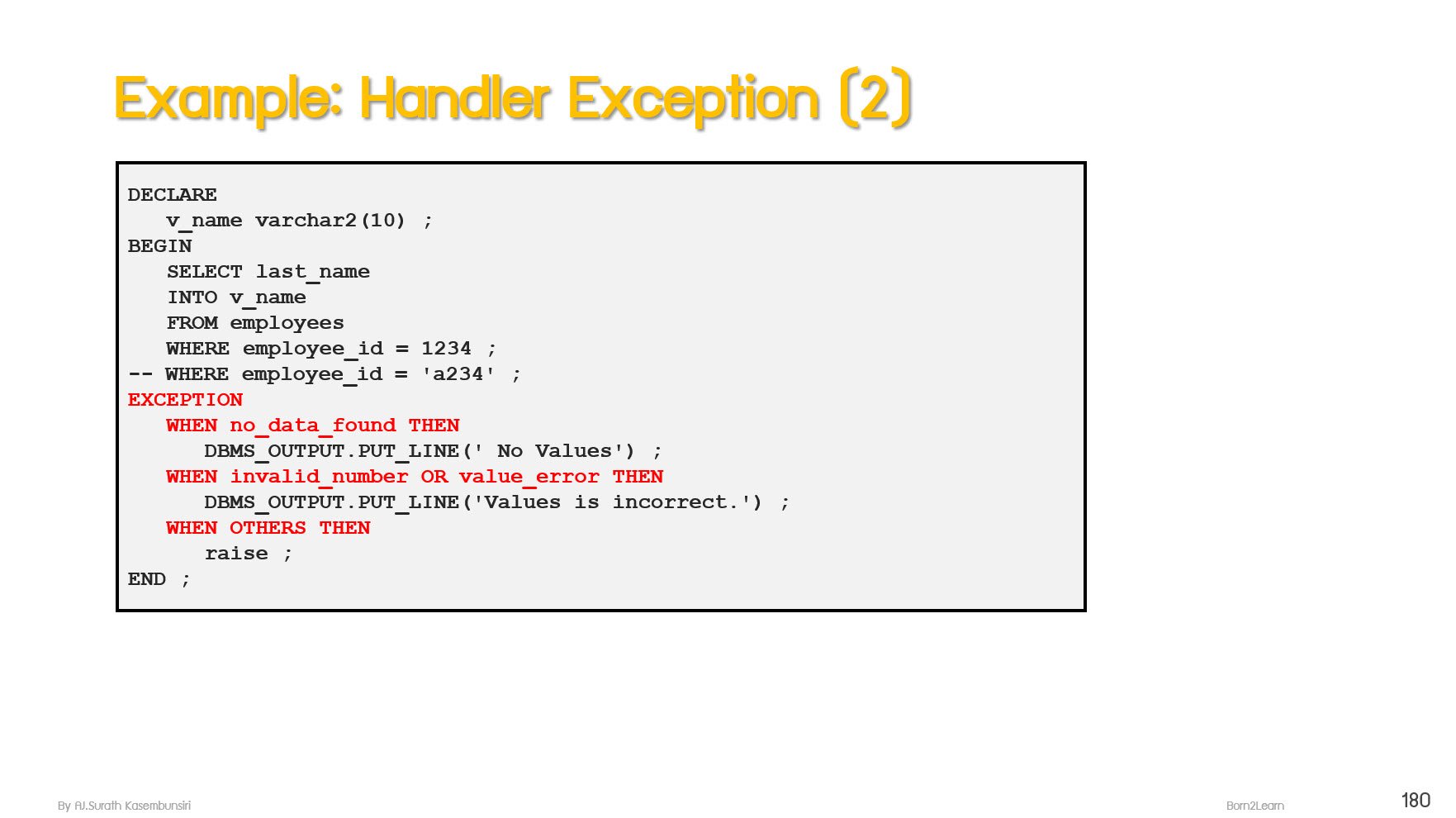
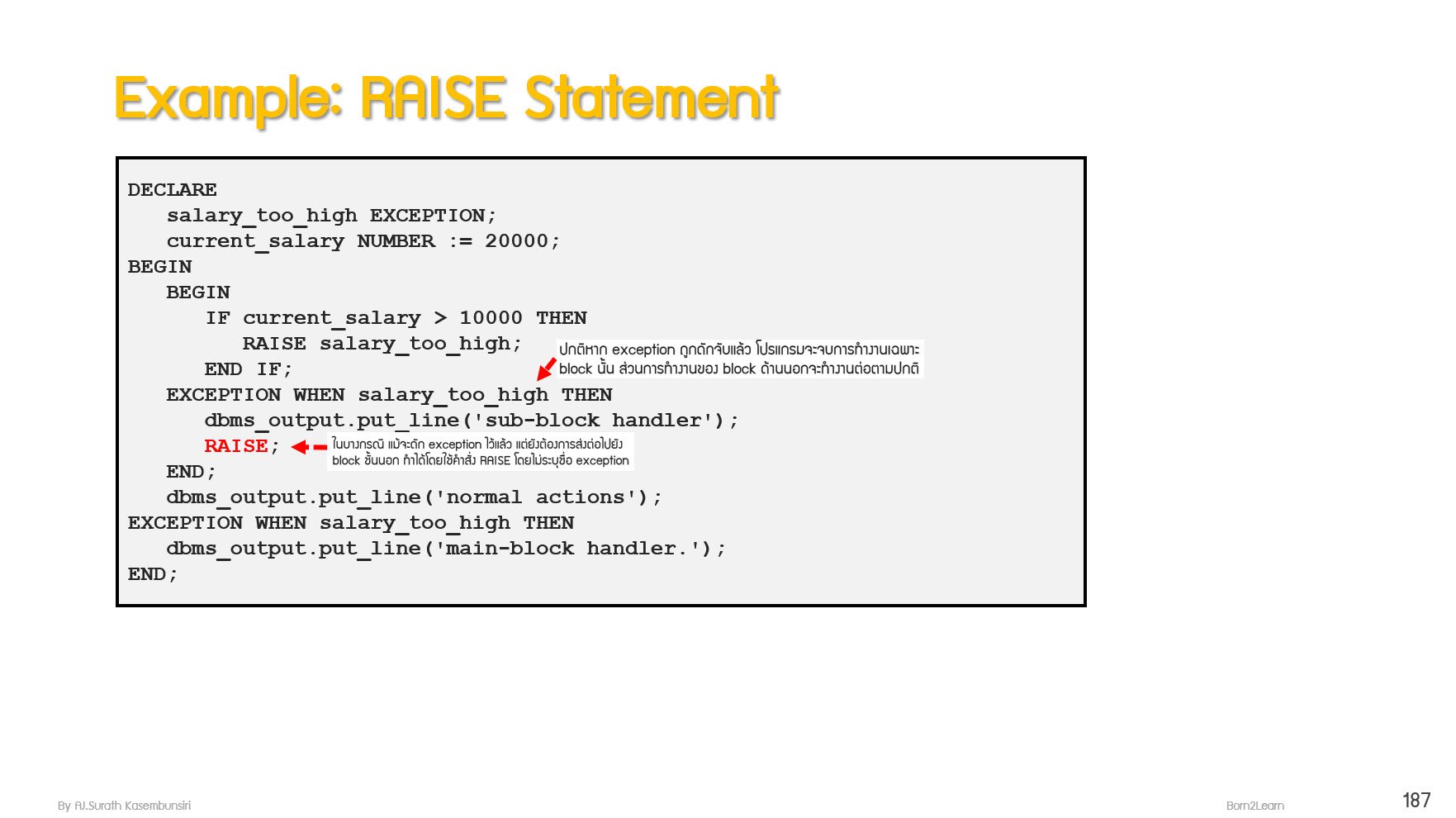
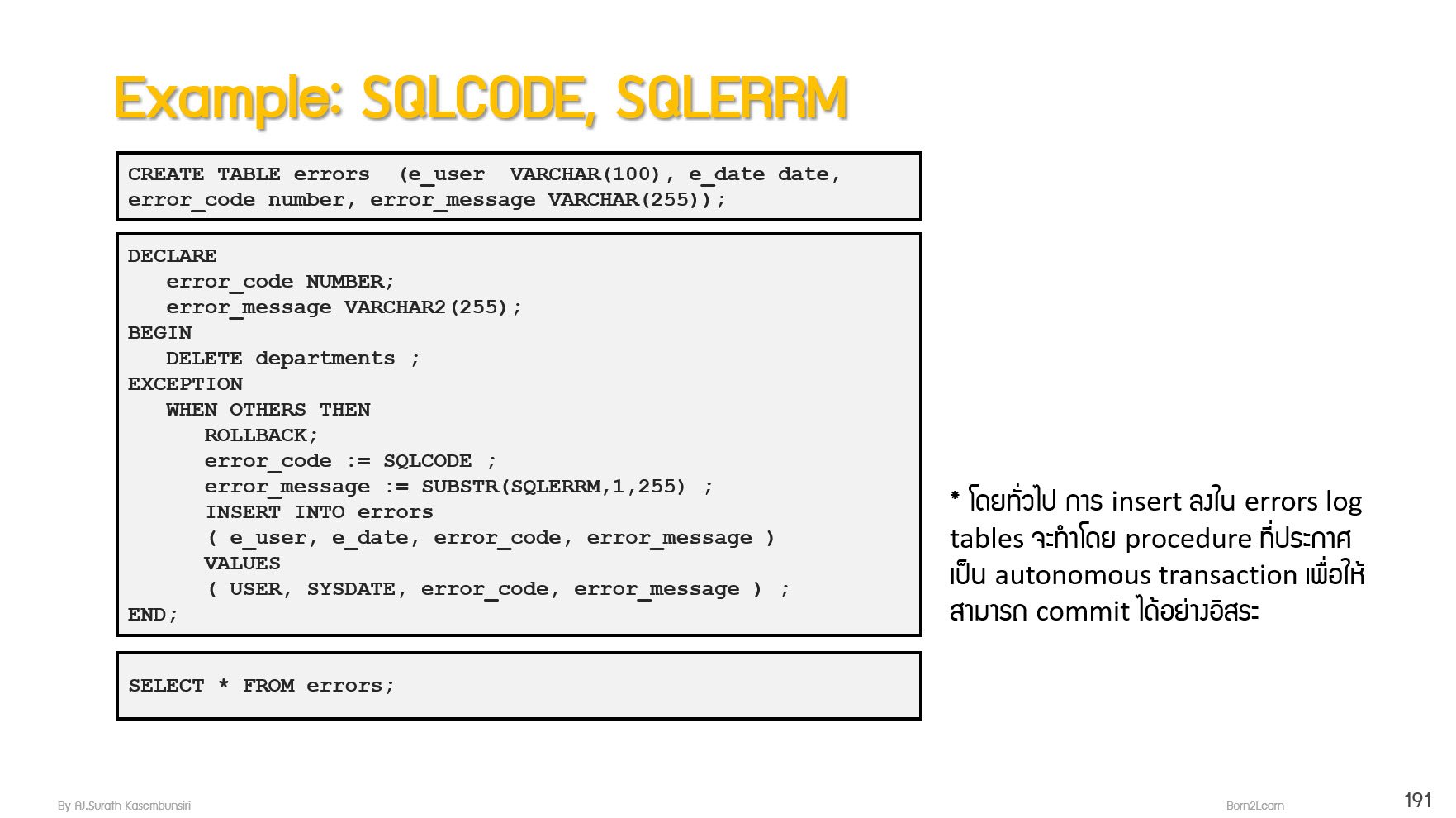
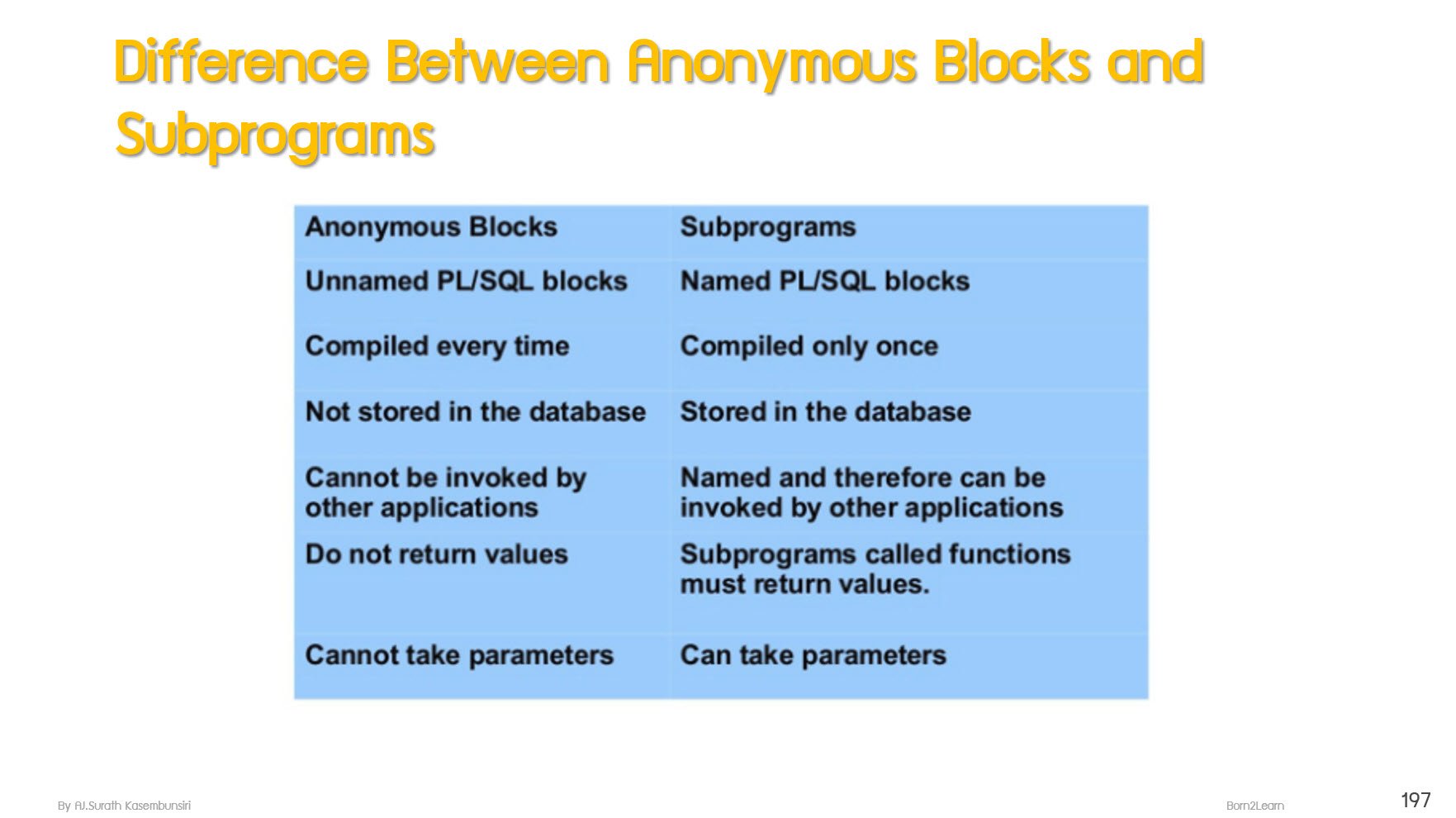
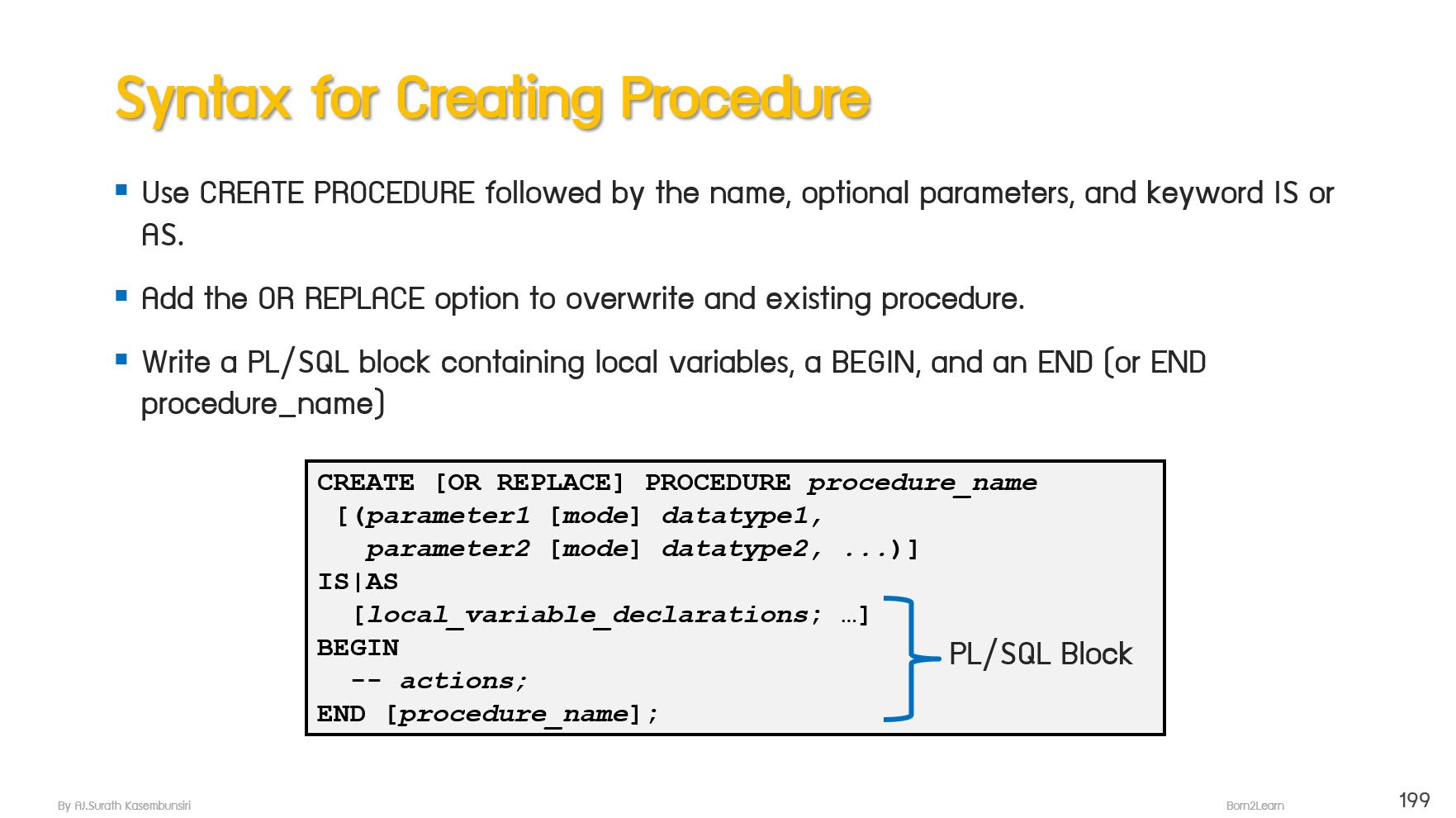
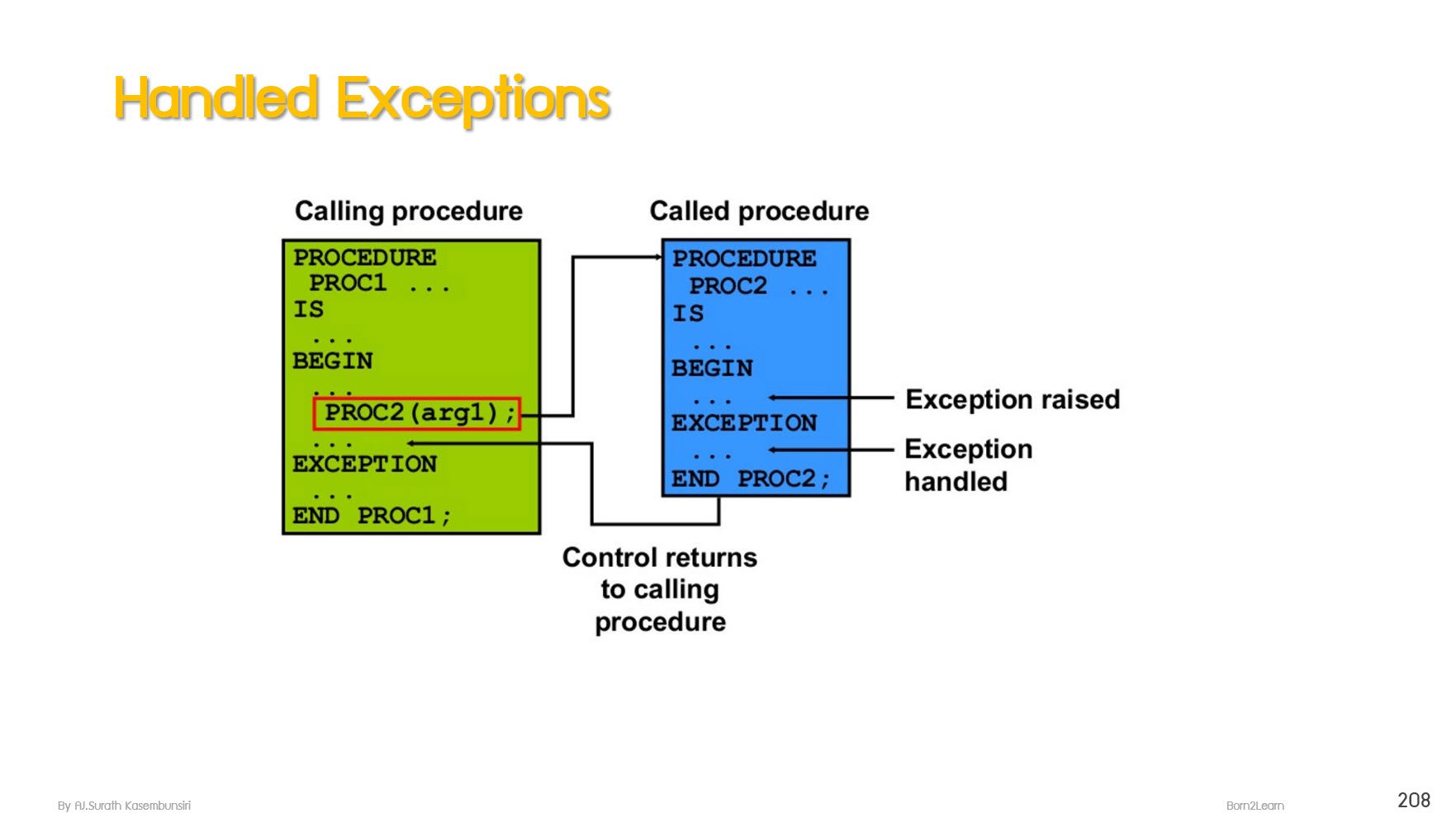
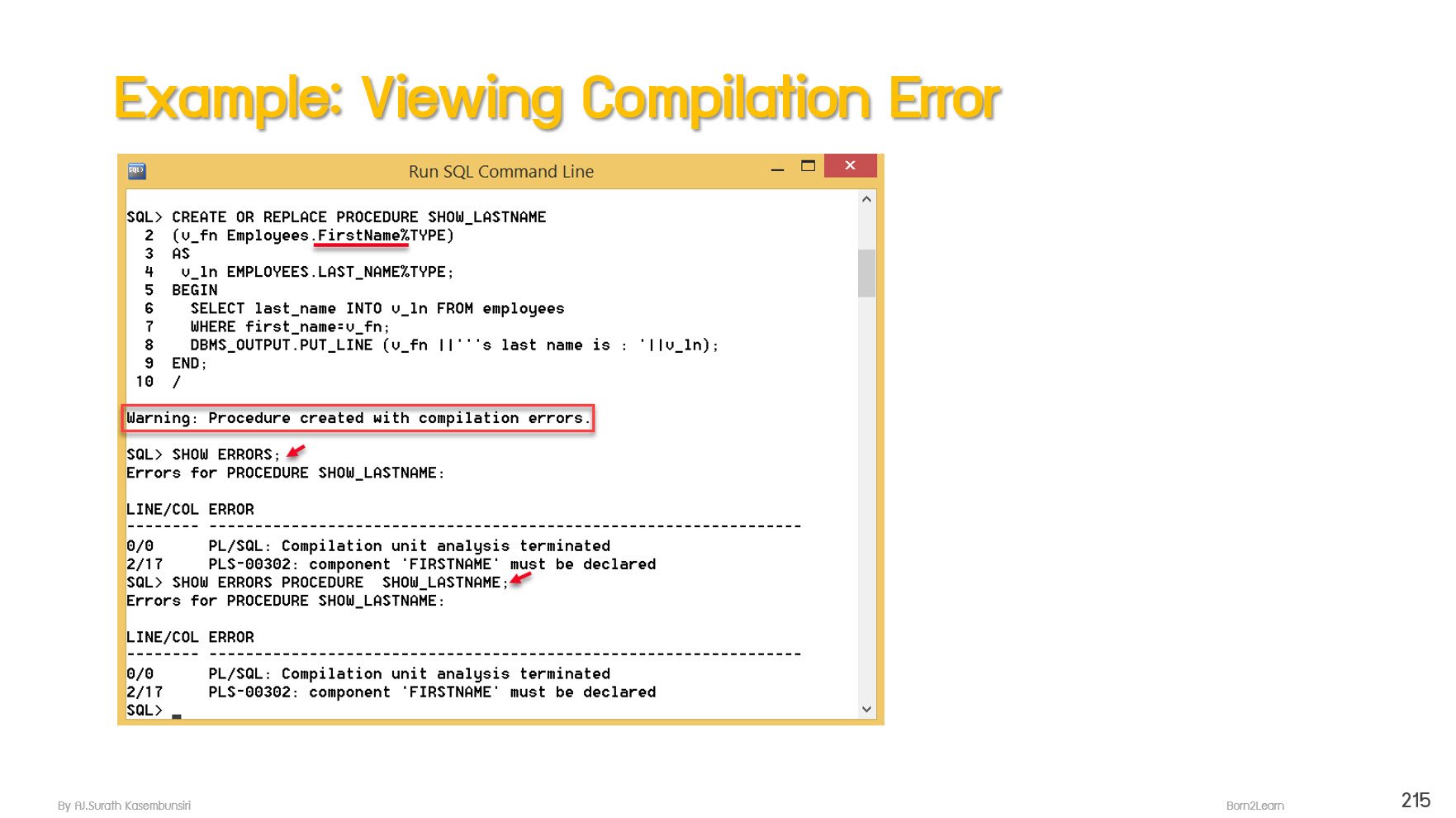
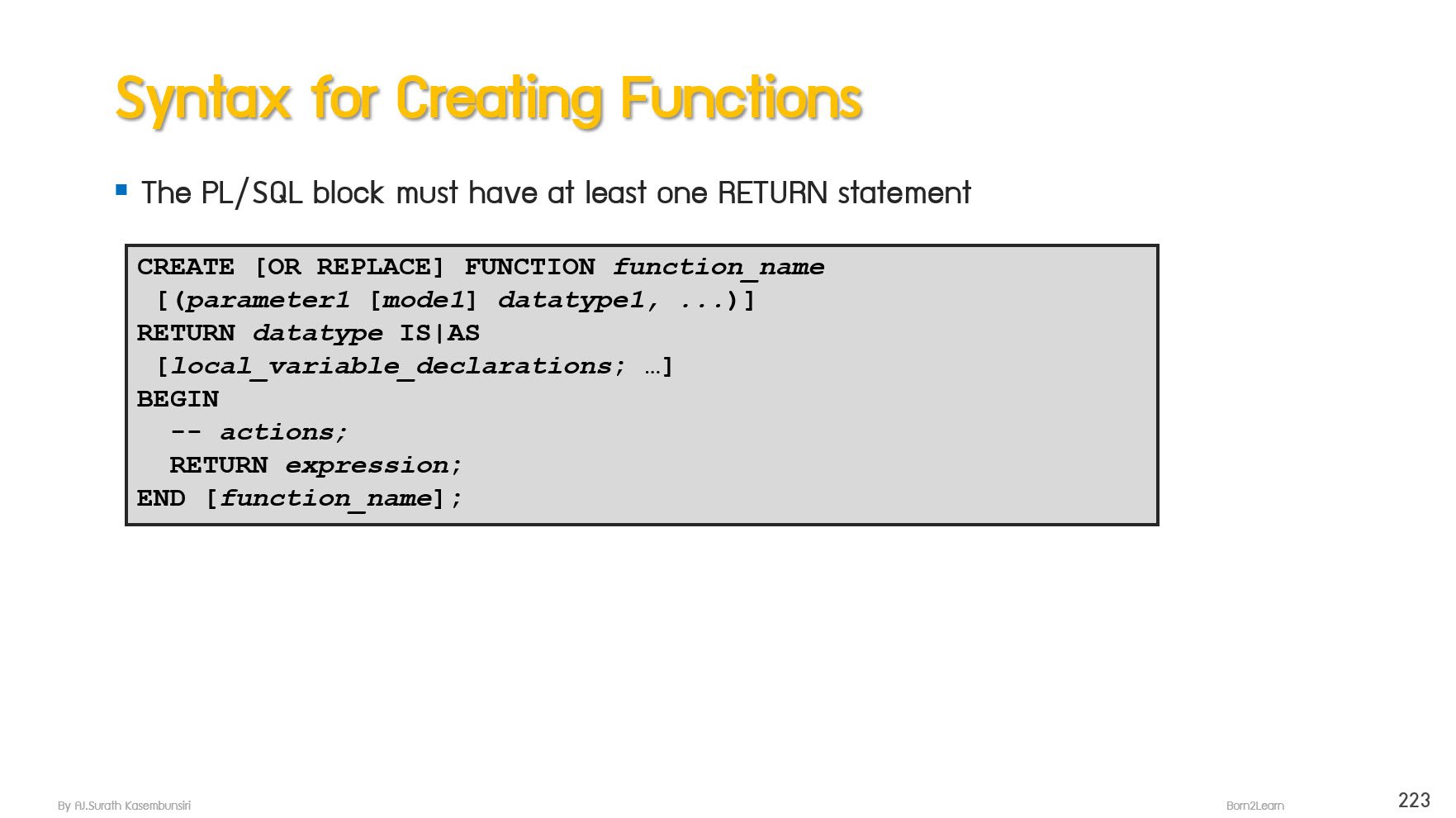
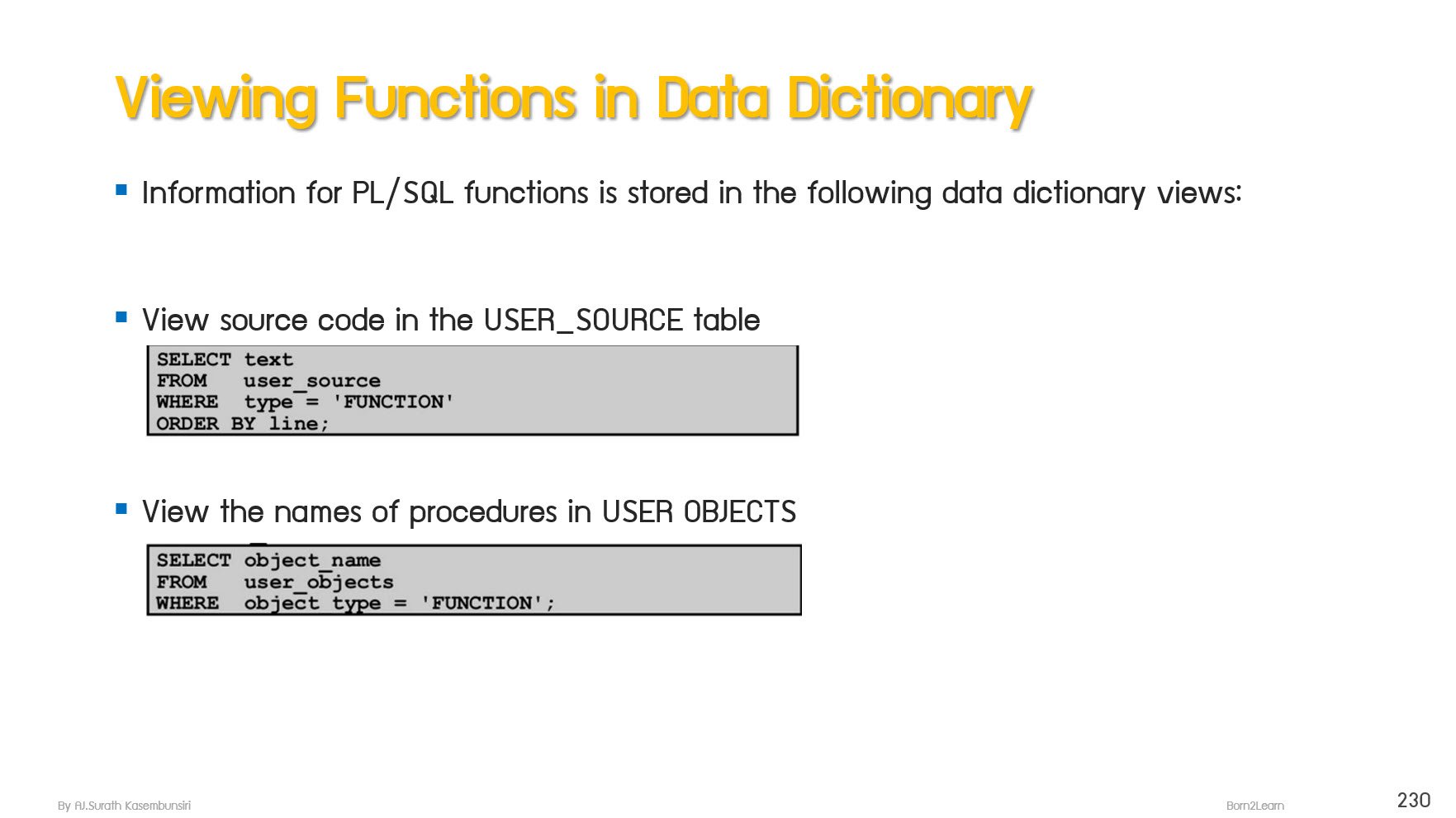
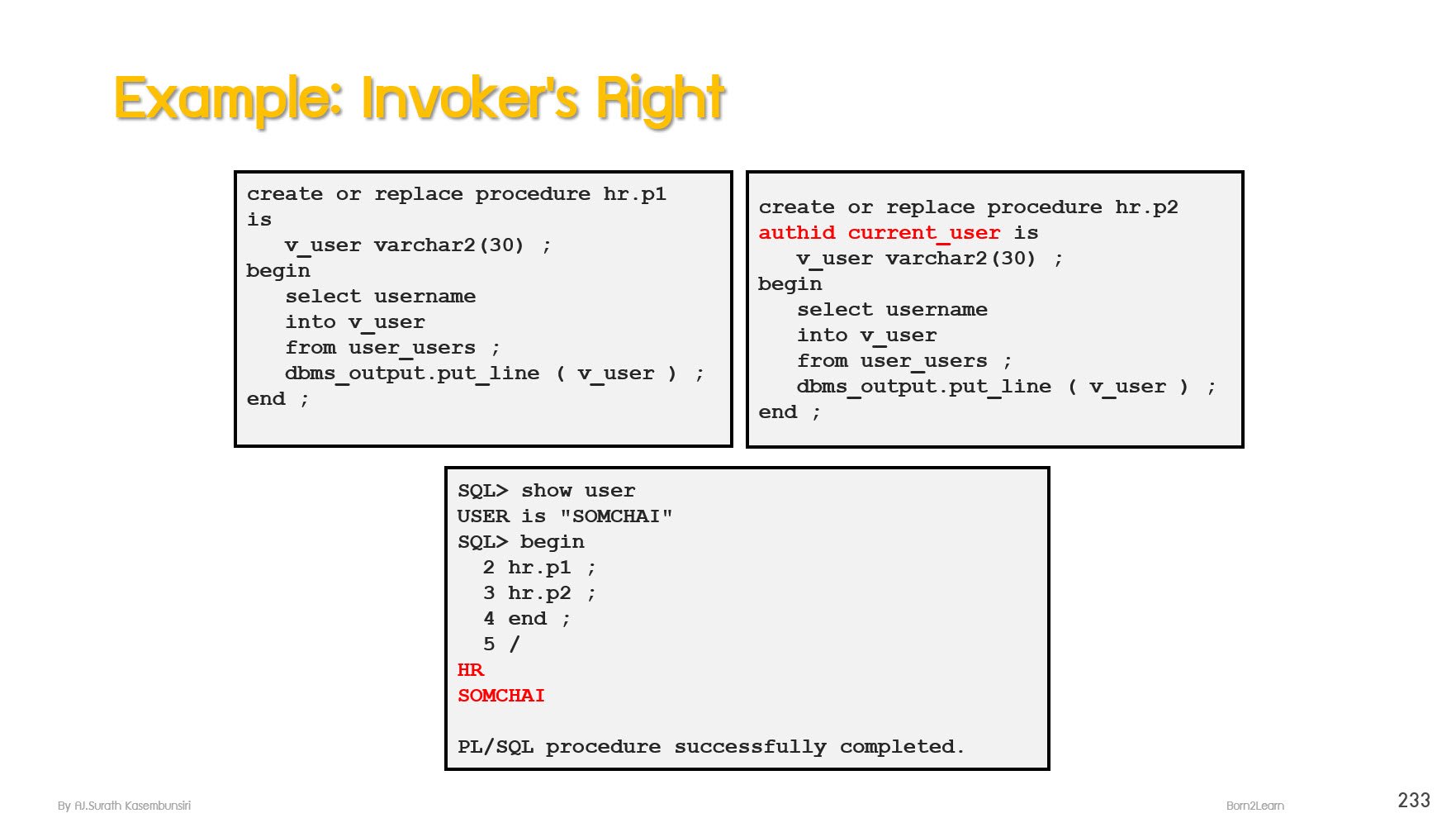
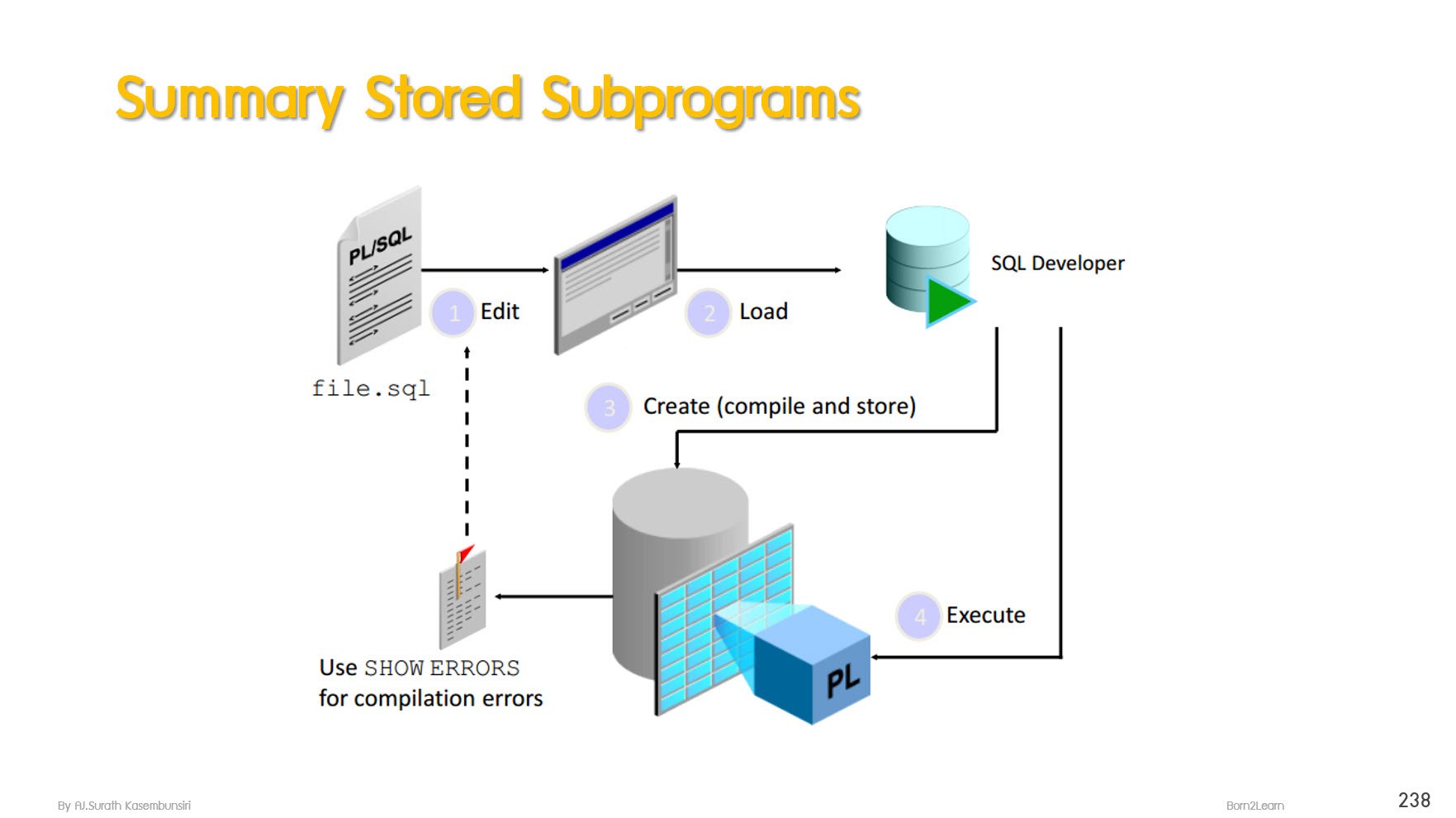
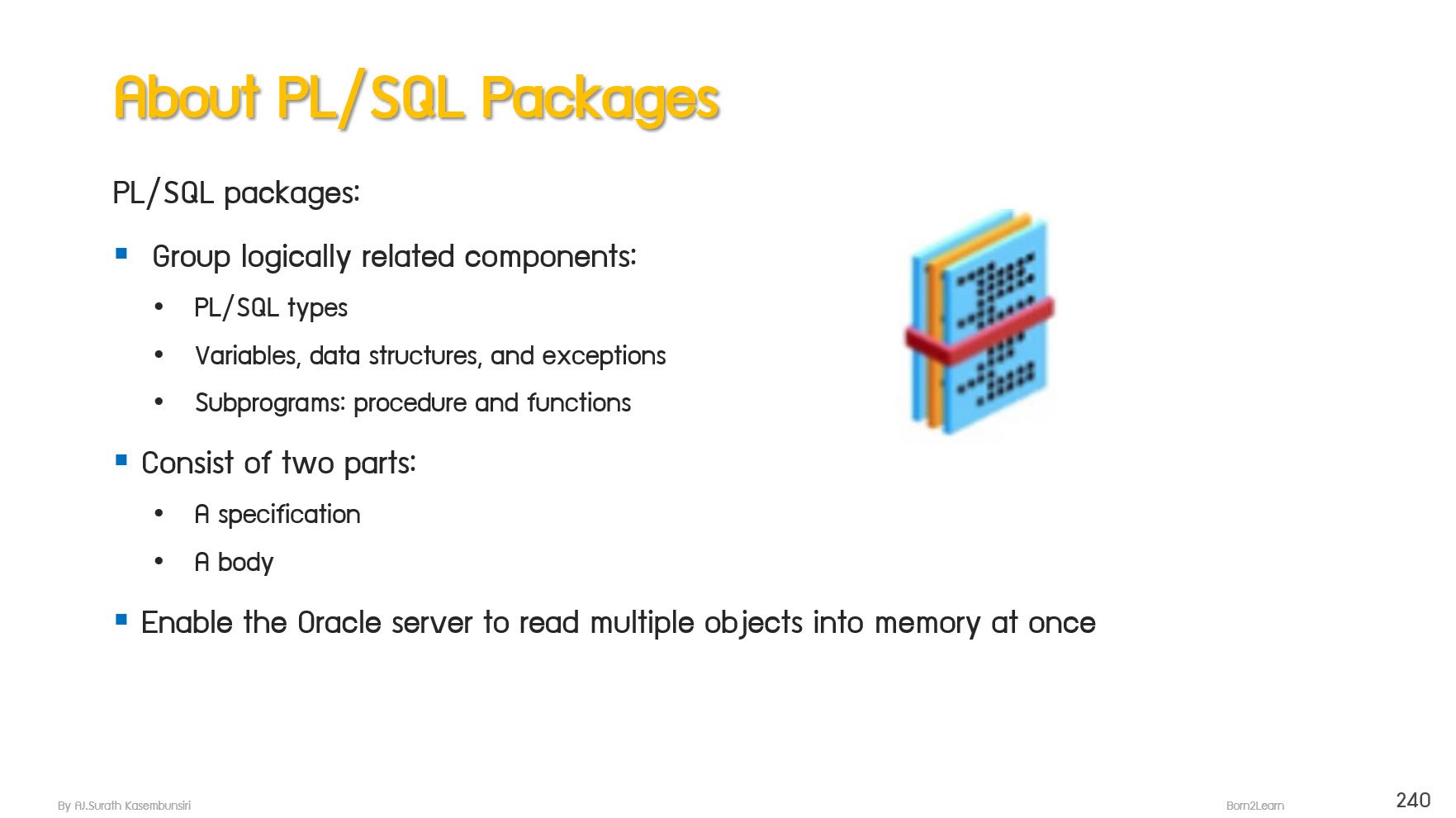
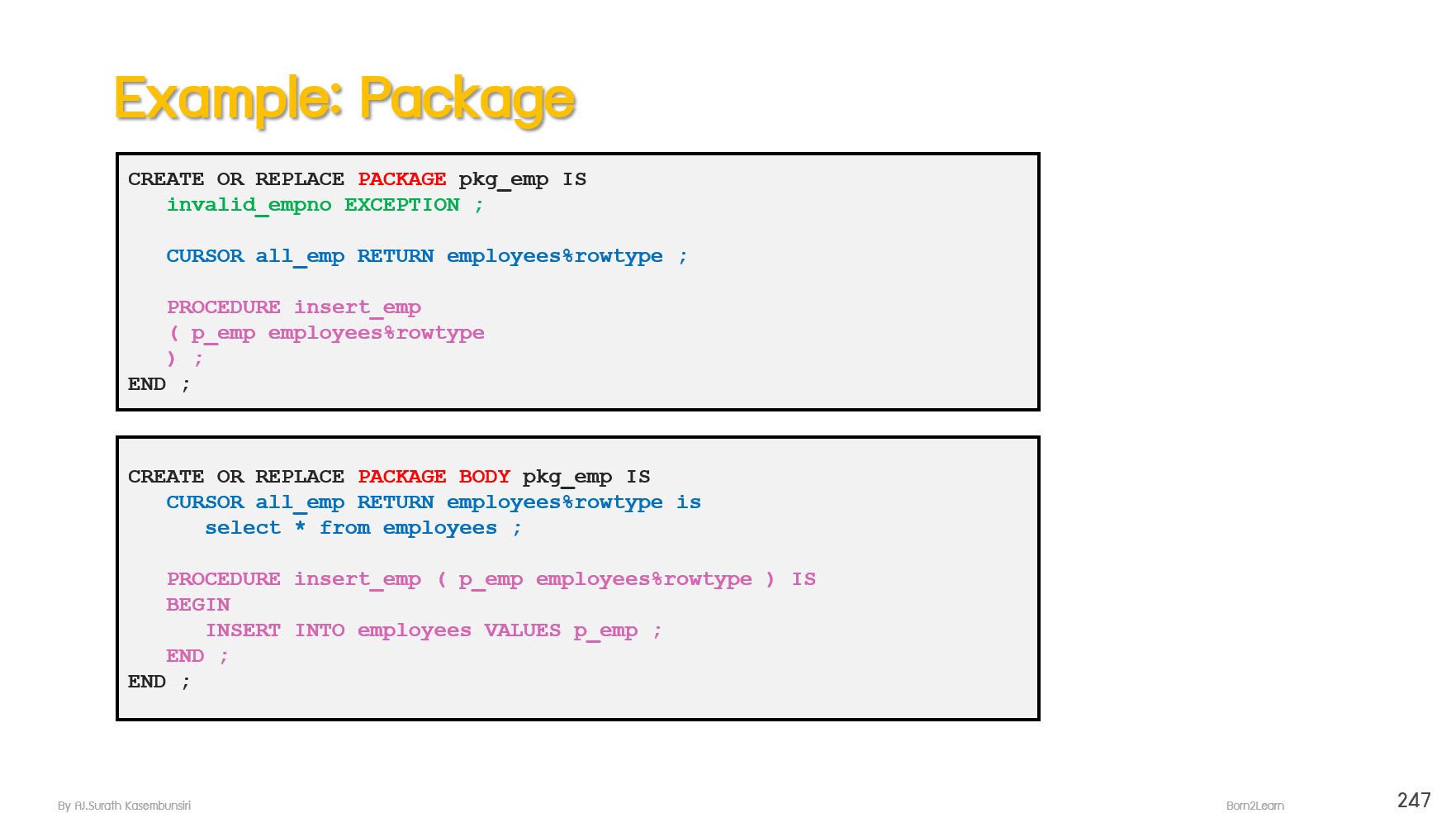
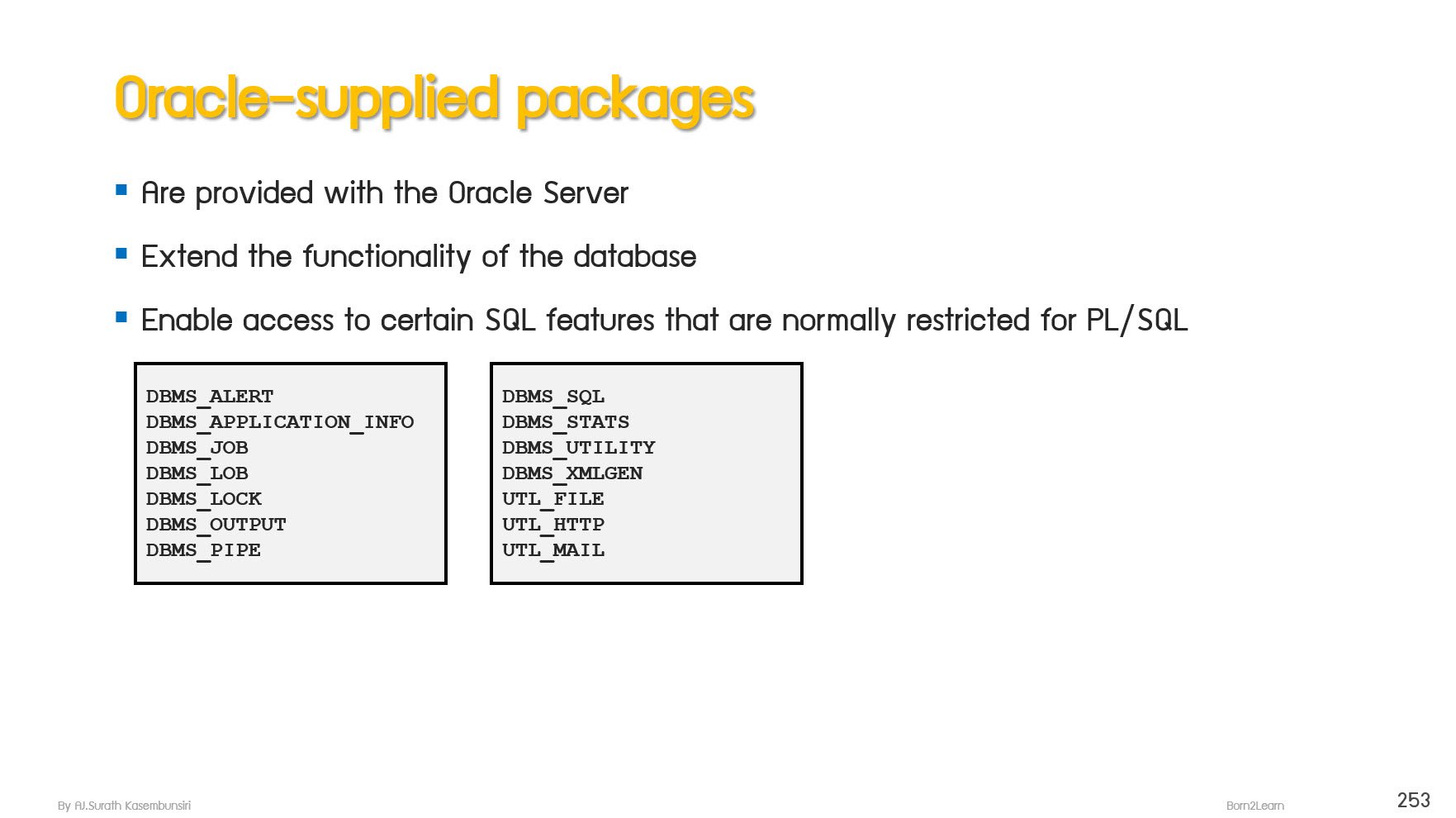
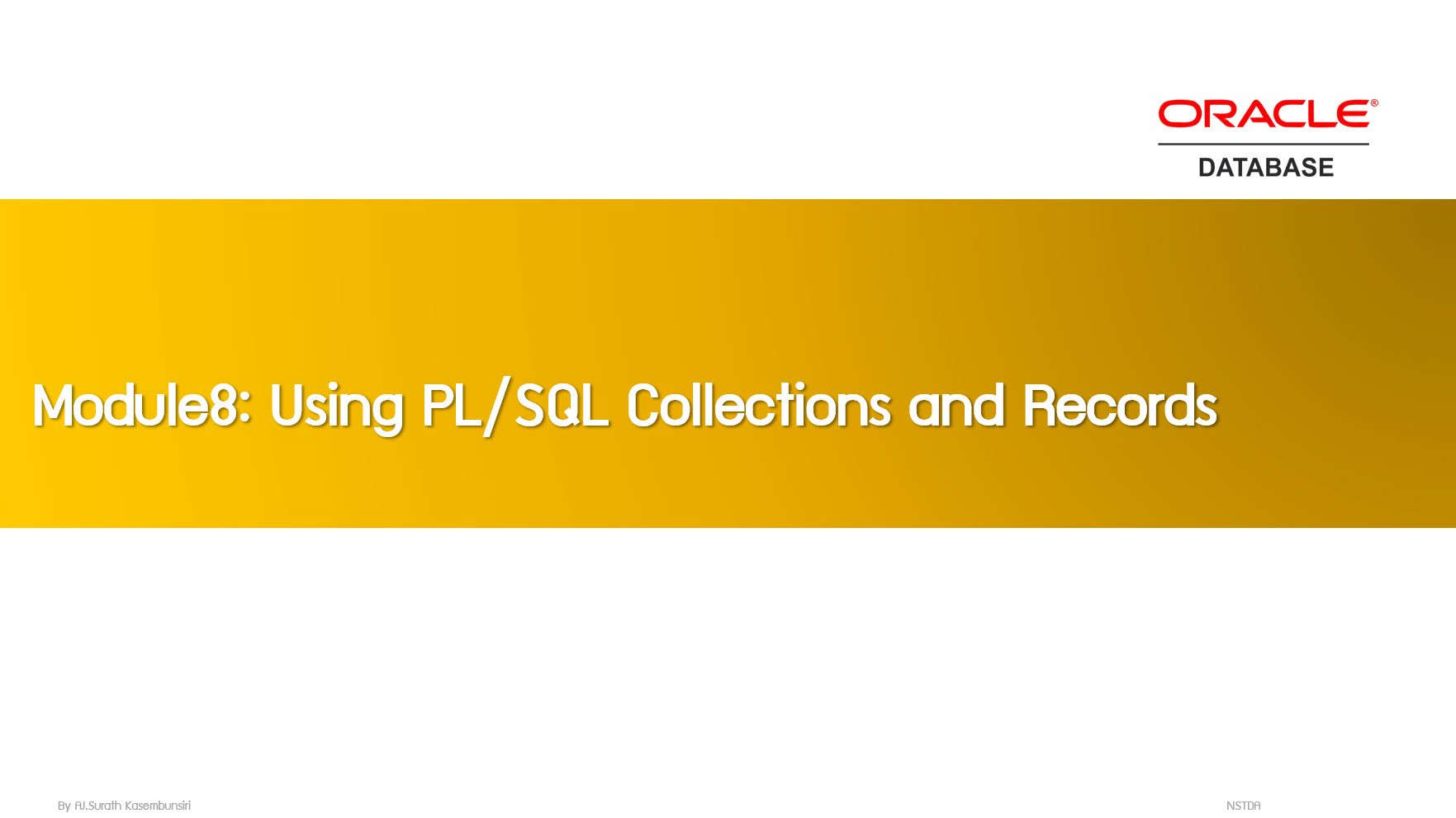
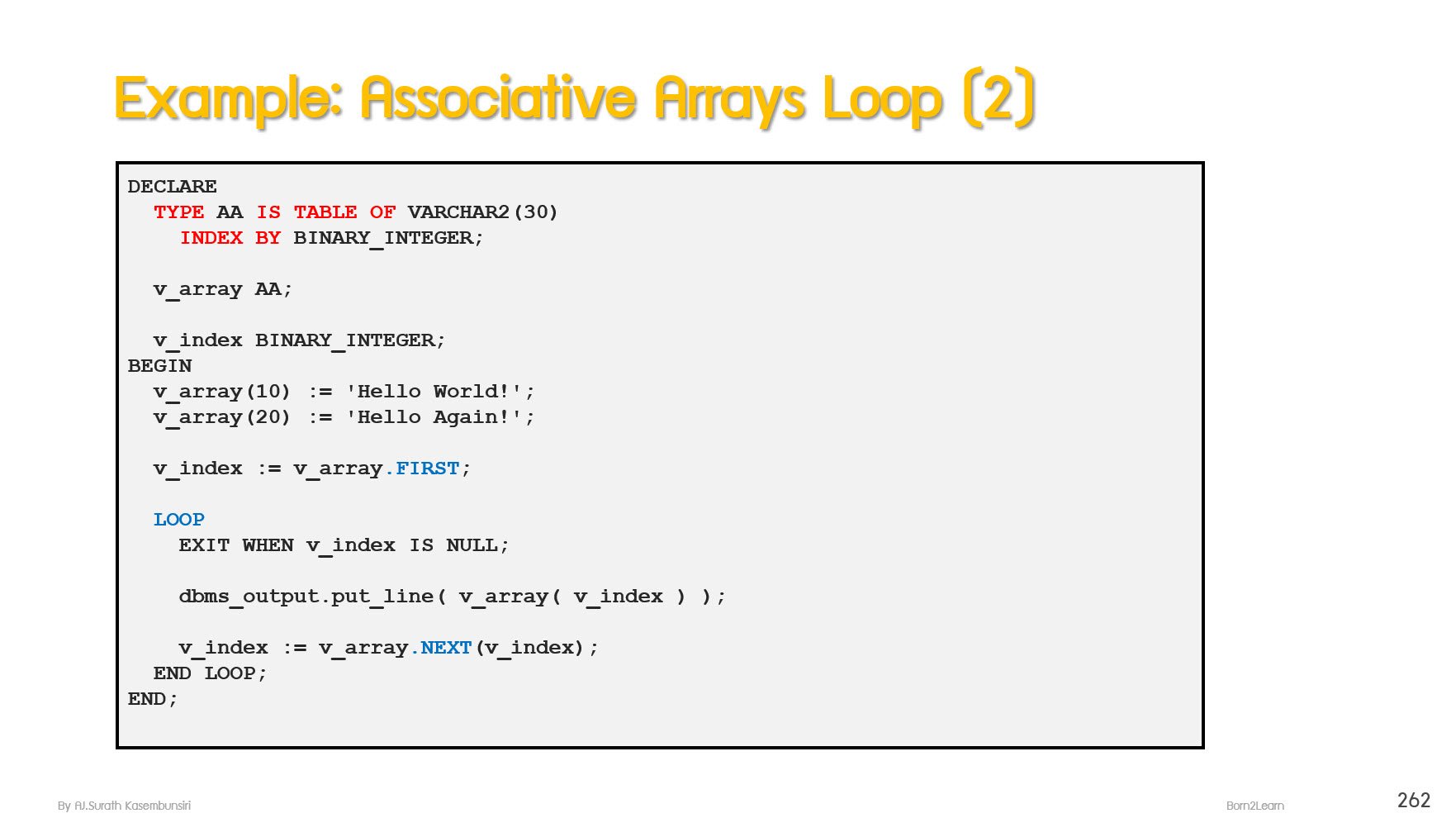
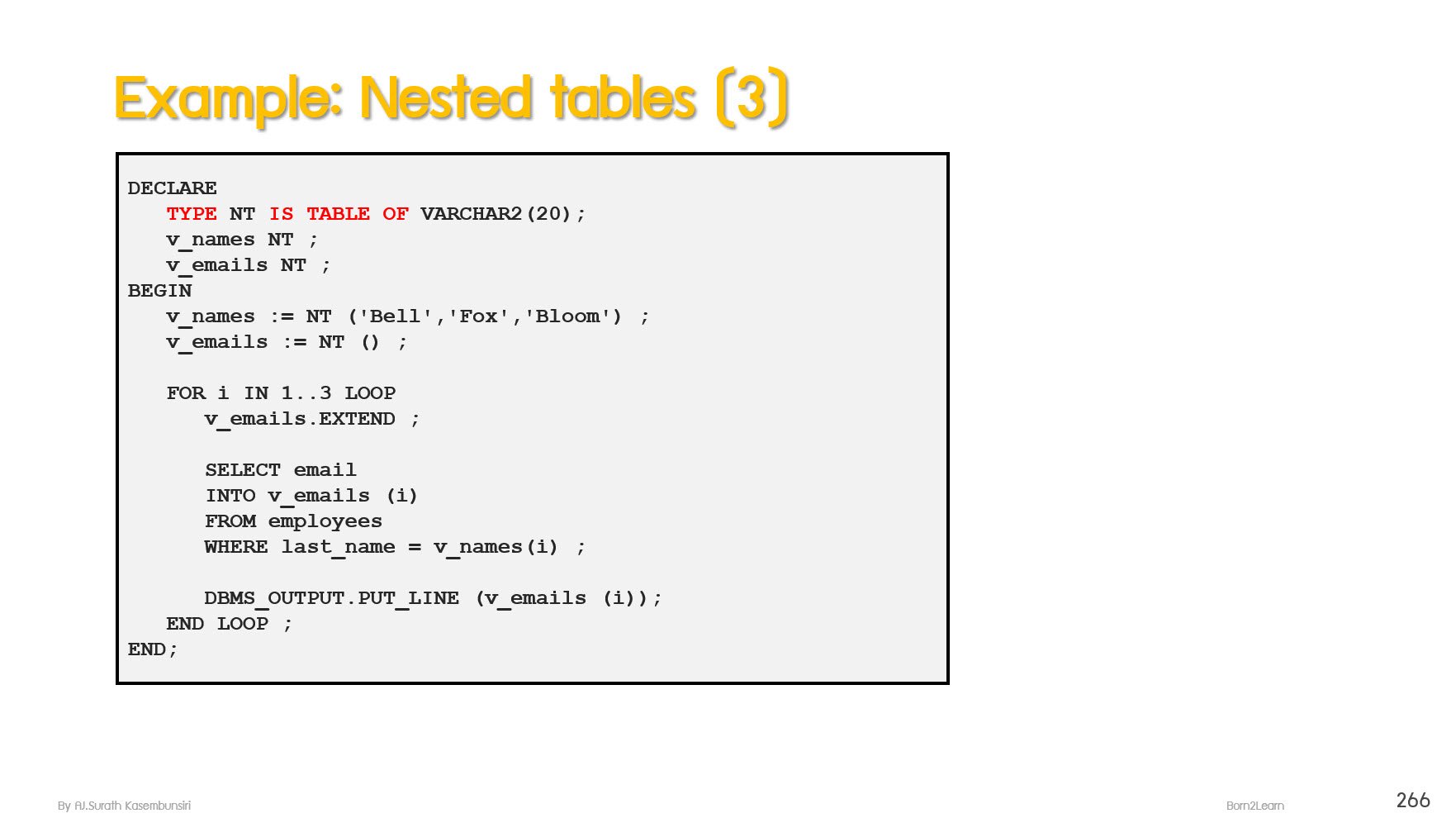
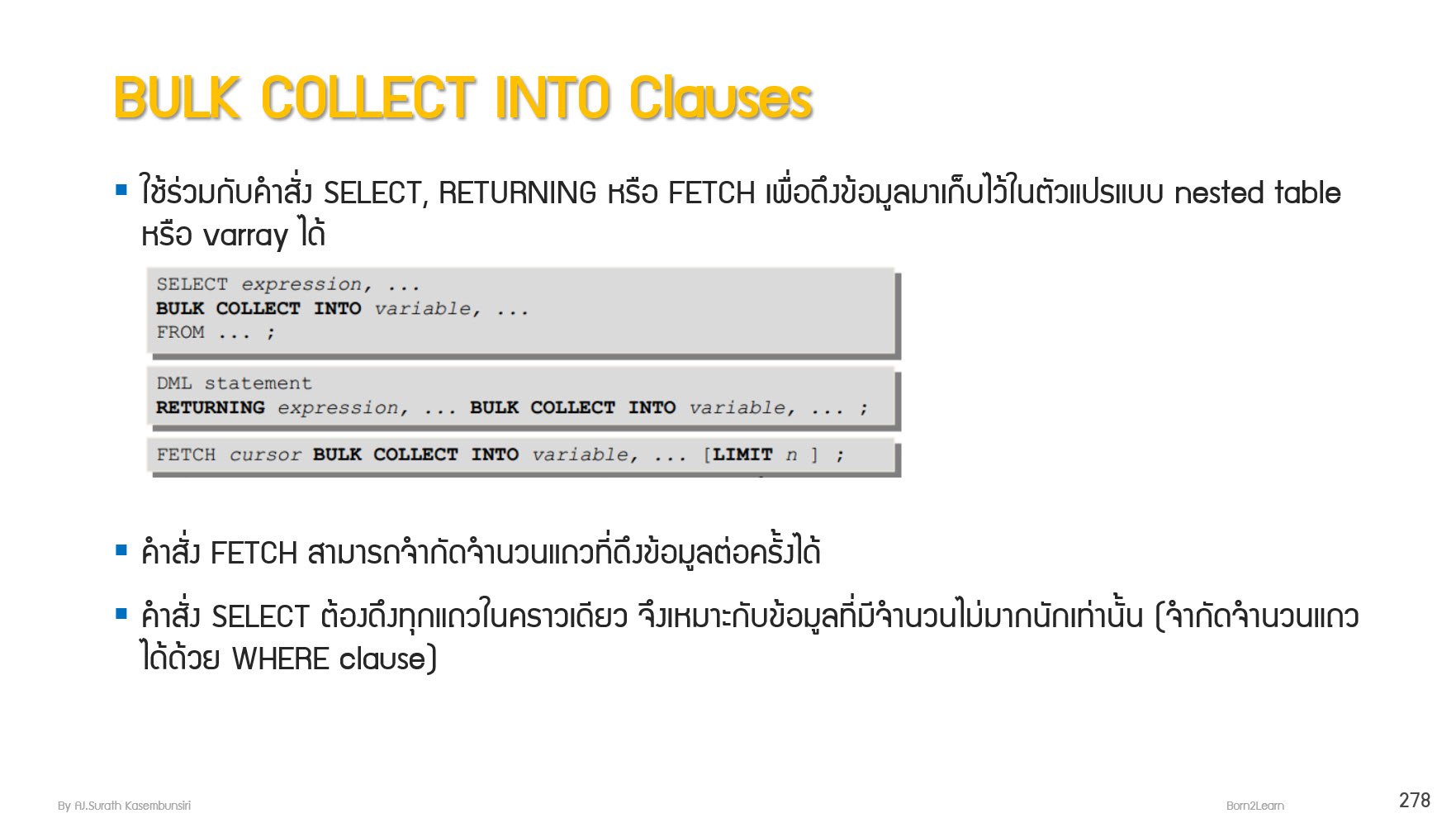
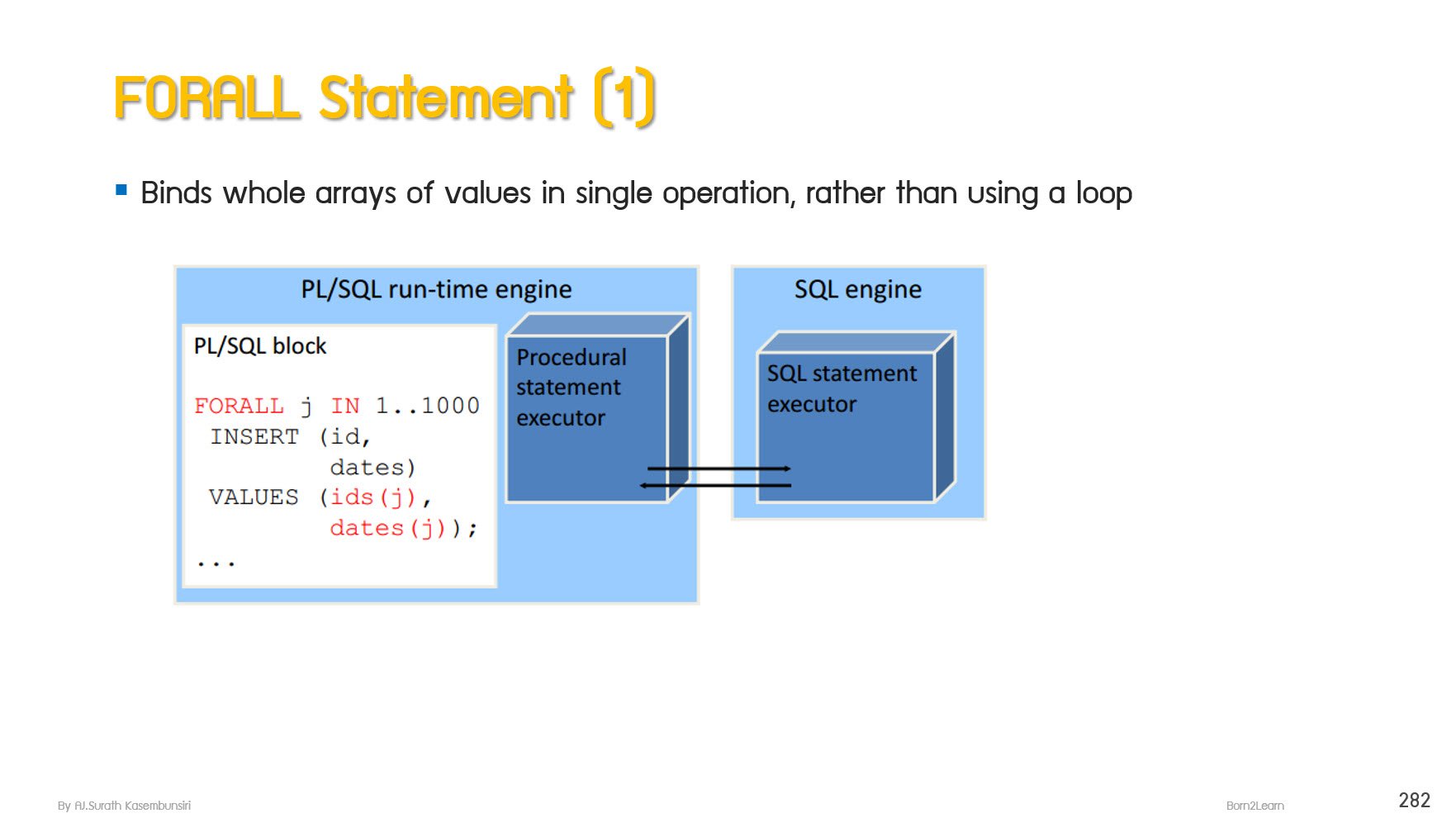
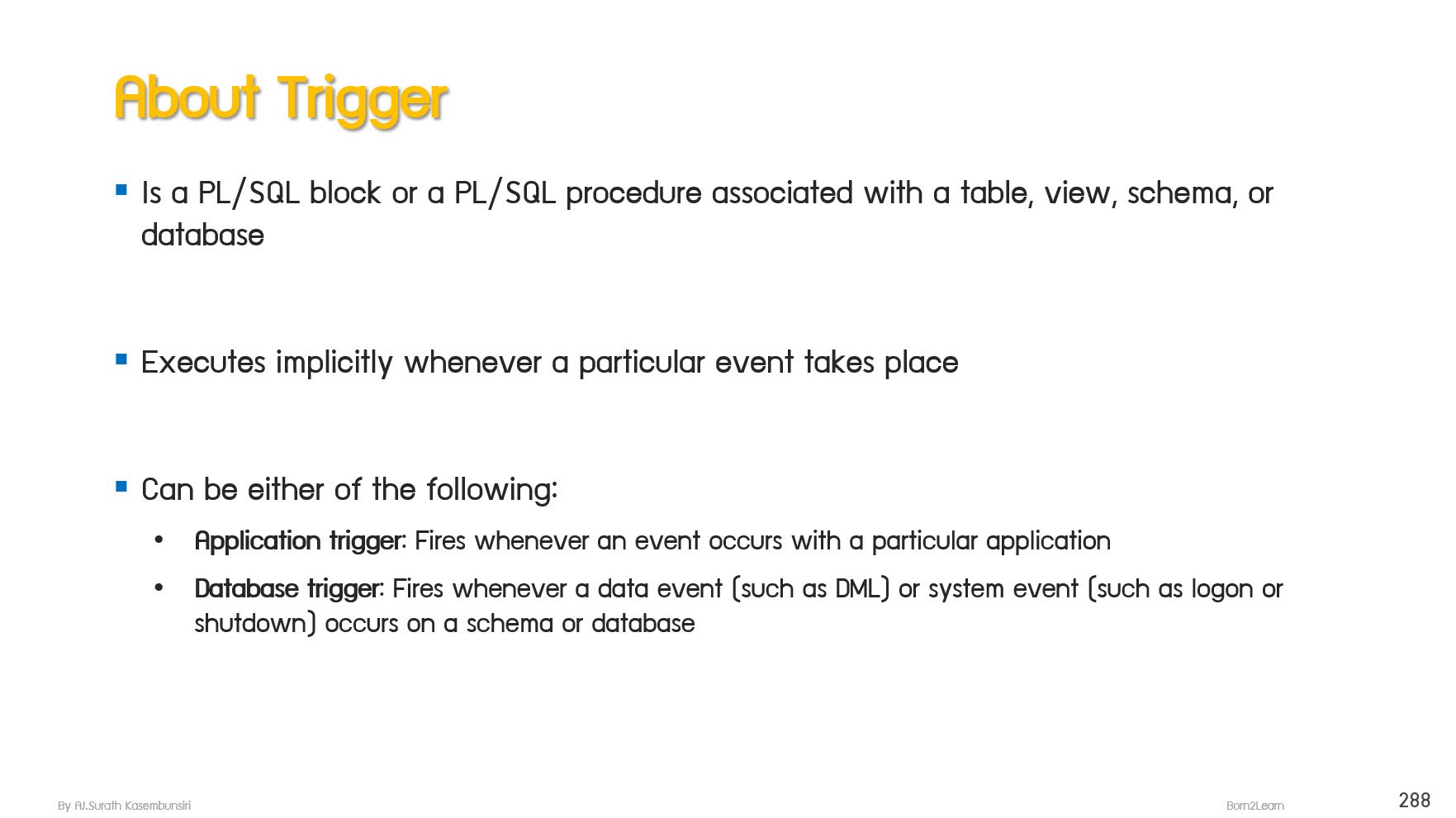
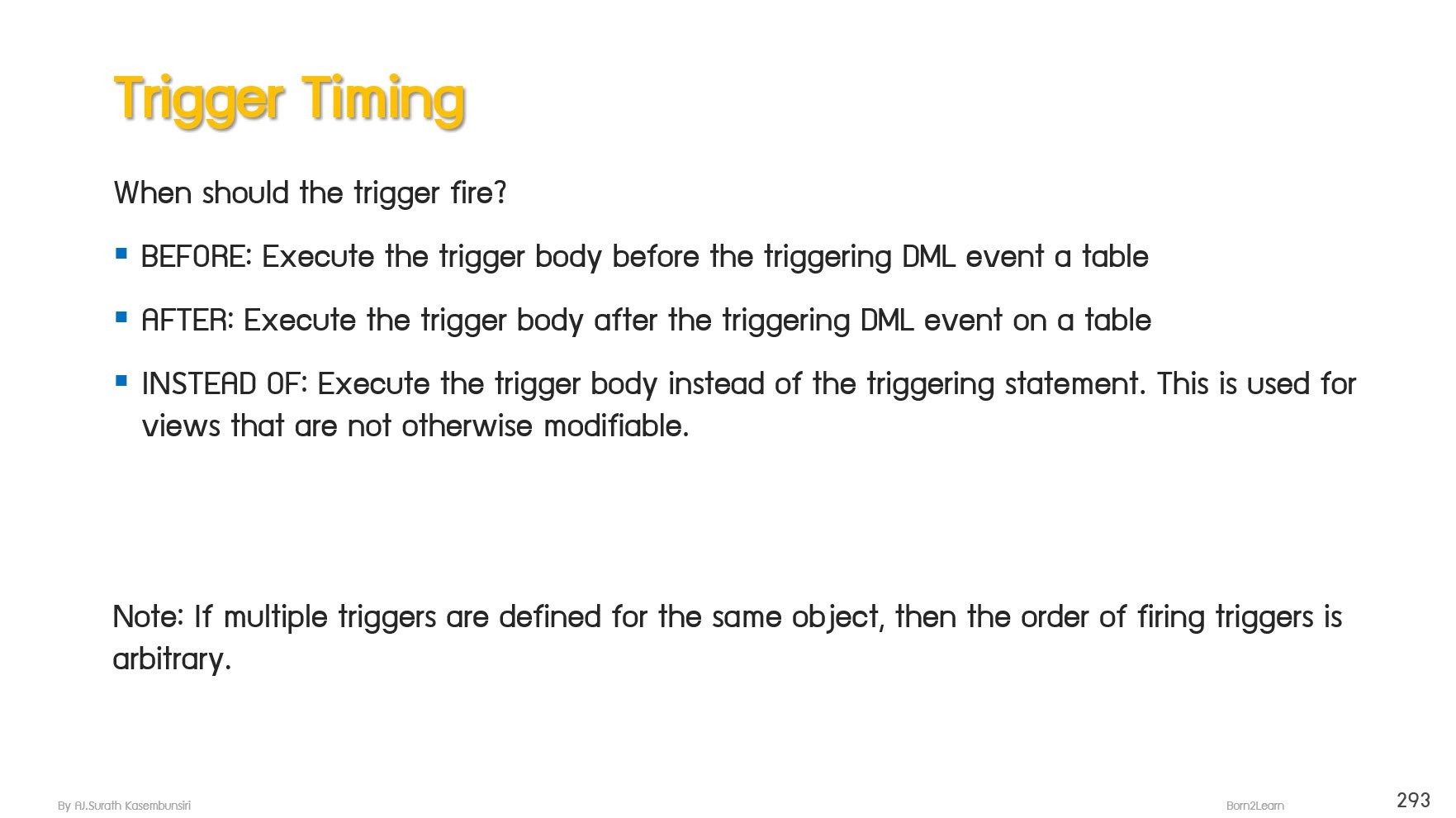
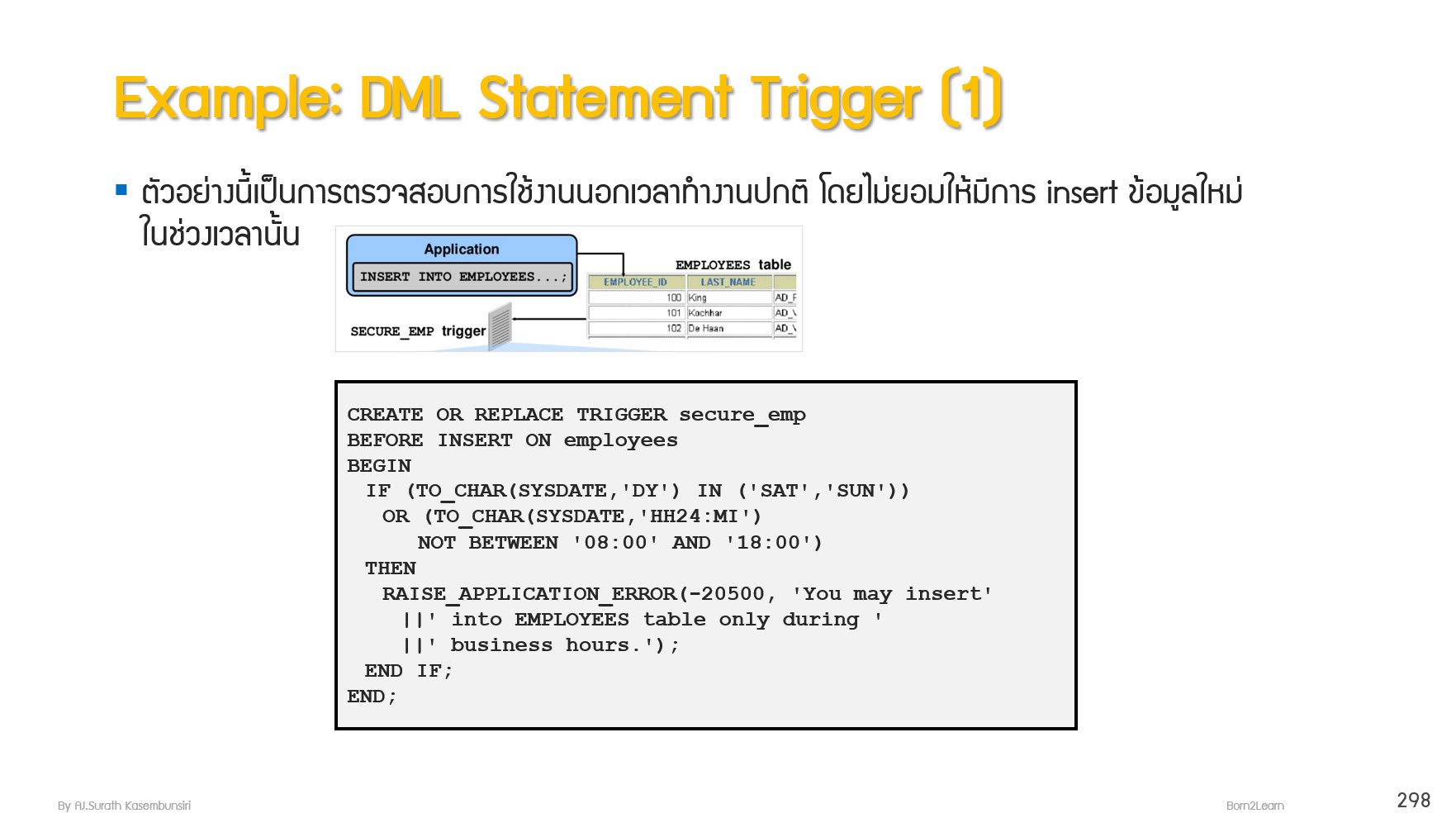
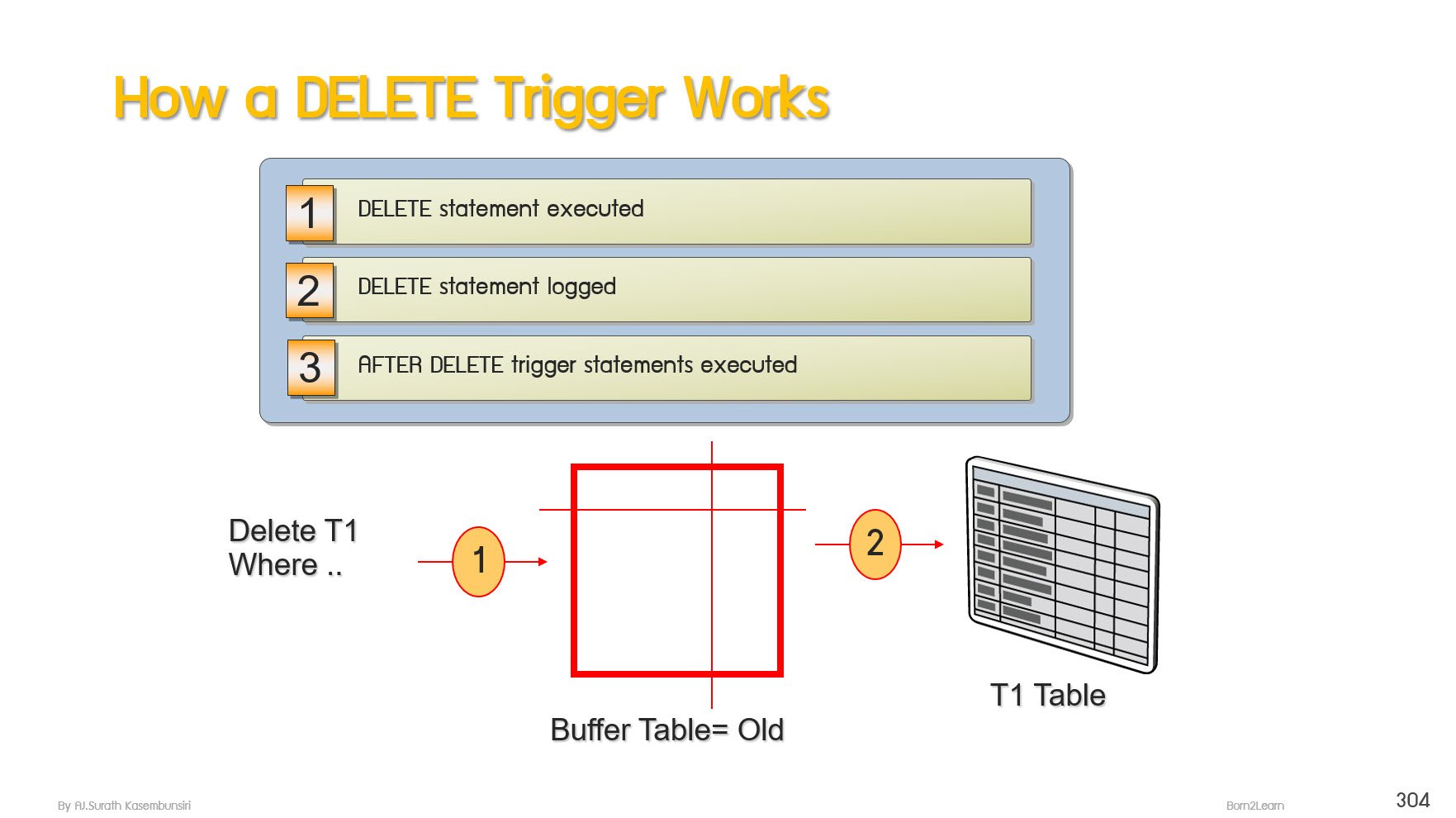
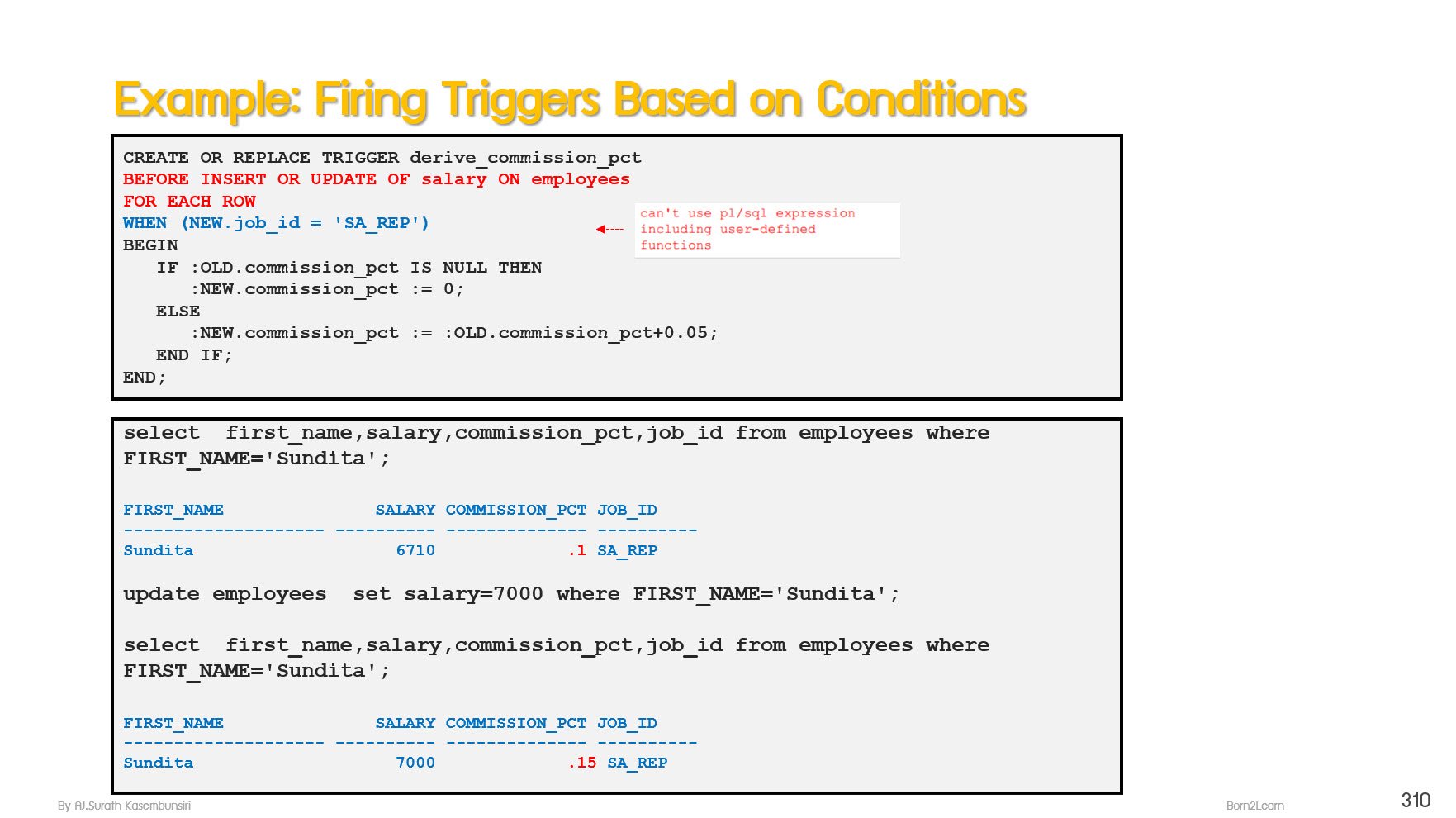
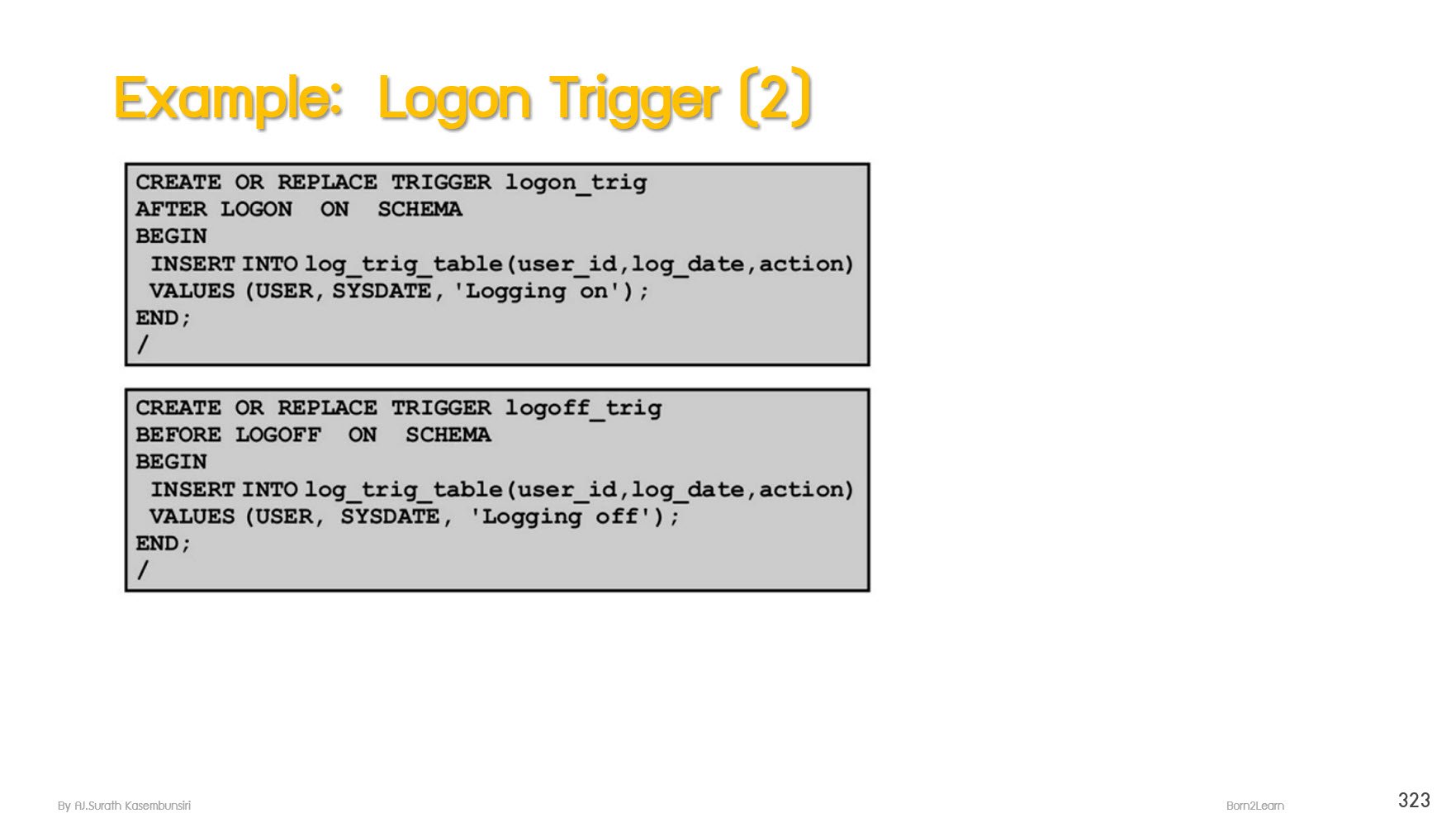
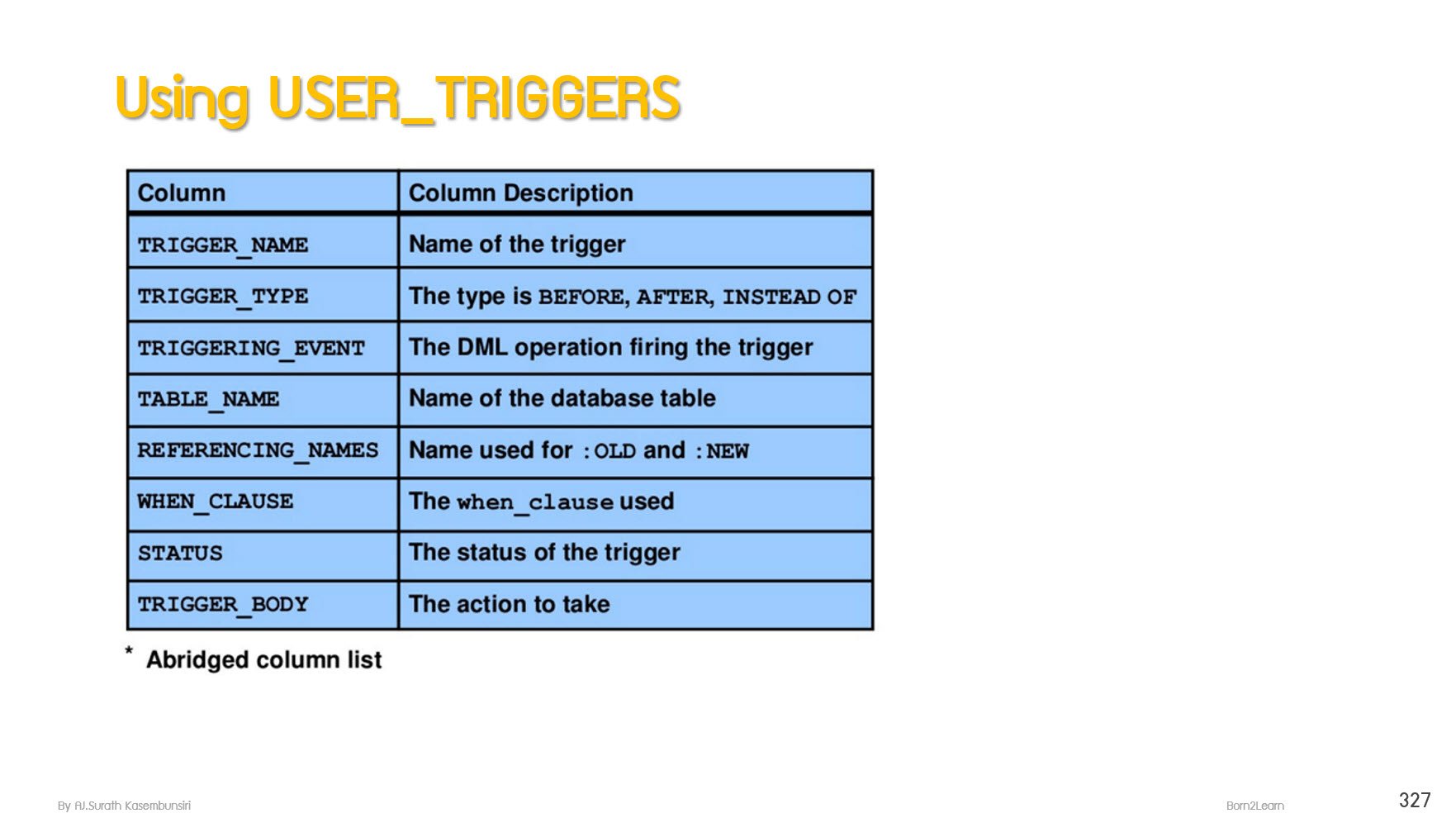
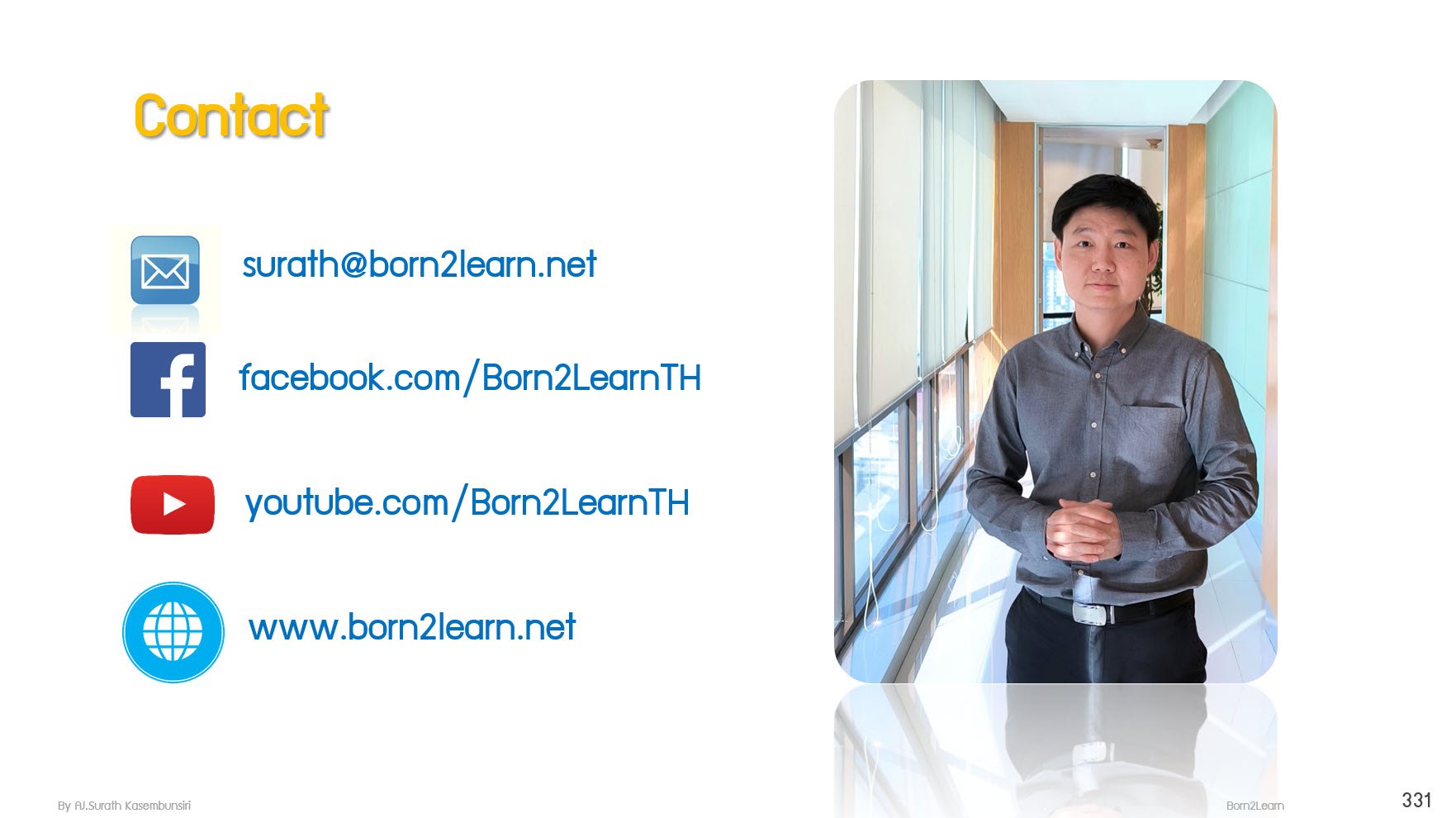
หลักสูตรอบรม : Oracle Database PL/SQL Programming
ระยะเวลา: 4 วัน (24 ชม.) 9.00 - 16.00 น.
ราคาอบรม/ท่าน : 15,000 บาท/17,000 บาท (Public Training with Online/Onsite)
กรณีเป็น In-house Training จะคำนวณราคาตามเงื่อนไขของงานอบรม
*ราคาดังกล่าวยังไม่รวมภาษีมูลค่าเพิ่ม*
Public Training หมายถึง การอบรมให้กับบุคคล/บริษัท ทั่วไป ที่มีความสนใจอบรมในวิชาเดียวกัน โดยจะมี 2 แบบ
1. อบรมแบบ Online โดย Live ผ่านโปรแกรม Zoom พร้อมทำ Workshop ร่วมกันกับวิทยากร
2. อบรมแบบ Onsite ณ ห้องอบรม ที่บริษัทจัดเตรียมไว้ พร้อมทำ Workshop ร่วมกันกับวิทยากร
หมายเหตุ: - ผู้อบรมต้องนำเครื่องส่วนตัวมาใช้อบรมด้วยตัวเอง
- วันอบรมที่ชัดเจนทางบริษัทจะแจ้งภายหลัง ตามเดือนที่ผู้อบรมแจ้งความประสงค์ไว้ (ทางบริษัทขอสงวนสิทธิ์การปรับเปลี่ยน ตามความเหมาะสม)
In-house Training หมายถึง การอบรมให้กับบริษัทของลูกค้าโดยตรง โดยใช้สถานที่ของลูกค้าที่จัดเตรียมไว้ หรือจะเป็นแบบ Online ก็ได้เช่นกัน และลูกค้าสามารถเลือกวันอบรมได้
ลงทะเบียนอบรมได้ที่
เน้นการทำ Workshop ที่ถูกออกแบบมาอย่างดีเยี่ยม, สนุกสนาน, ครบครัน เพื่อช่วยในการเรียนรู้และทำให้เกิดความเข้าใจได้อย่างง่ายดายที่สุด
#พร้อมเอกสาร lab และ source code #ทุกขั้นตอน
(ลิขสิทธิ์ โดย อ.สุรัตน์ เกษมบุญศิริ)
เนื้อหาต่างๆ มีการปรับเปลี่ยน/จัดหมวดหมู่ ใหม่ทั้งหมด เพื่อทำให้ง่ายต่อความเข้าใจ
การันตีครับ ว่า ผู้อบรมทุกคนที่จบจาก course นี้จะได้รับความรู้ทั้งภาคทฤษฏีและภาคปฏิบัติ อย่างครบถ้วน เพื่อนำไปใช้ในการทำงานจริง
📌เริ่มปูตั้งแต่พื้นฐาน skill set ของผู้เริ่มต้นการเขียน Oracle PL/SQL
📌ความหมายที่แท้จริงของ PL/SQL
📌ประโยชน์ของ PL/SQL ที่ Dev ควรรู้ว่า ดีกว่าการเขียน SQL ทั่วไปอย่างไร
📌รูปแบบการทำงานของ PL/SQL
📌เข้าสู่โครงสร้างของ PL/SQL Block
📌Anonymous Block vs. Named Block คืออะไร มีความต่างกันอย่างไร
📌ส่วนประกอบของ PL/SQL Statement
📌ความเข้าใจเกี่ยวกับ Data Type และ Variables
📌เทคนิคเลือกใช้งาน Data Type แบบต่างๆ ที่เหมาะสมกับ Business App
📌เทคนิคการเขียน code SQL Statement ในระบบ PL/SQL
📌กฏ, กติกา, ข้อห้าม และข้อควรจำต่างๆ สำหรับการใช้คำสั่ง Select, Insert, Update, Merge และ Delete บน PL/SQL
📌การประกาศ และ เรียกใช้งาน SQL Cursor และการประยุกต์ในการนำไปใช้ประโยชน์ ในการเขียน program
📌การเขียน code เพื่อรองรับ Handling Exceptions ทำให้ App สามารถ run ได้ตลอดรอดฝั่ง และดักจับ error ได้ทันท่วงที
📌ความเข้าใจ และ ประโยชน์ ของ Store Procedure
📌การสร้าง และใช้งาน Store Procedure ใน use case ต่างๆ ที่น่าสนใจ
📌ความเข้าใจ และ ประโยชน์ ของ Functions
📌การสร้าง และใช้งาน Functions ใน use case ต่างๆ ที่น่าสนใจ
📌ความเข้าใจและ ประโยชน์ ของ PL/SQL Package
📌การสร้าง และใช้งาน PL/SQL Package เพื่อส่งมอบงานให้กับ Production
📌เทคนิคการประกาศใช้งาน PL/SQL Collections and Records ที่ Dev ทุกคนต้องรู้จักเพื่อประยุกต์ในการเขียน code ให้ App ทำงานได้เร็วขึ้น
📌ความเข้าใจ และ ประโยชน์ ของ Trigger
📌การสร้าง และใช้งาน Trigger ใน use case ต่างๆ ที่น่าสนใจ
📌workshop ตลอดการฝึกอบรม โดย lab practice ที่มีคุณภาพและทำให้กลมกล่อม เข้าใจง่าย โดย อ.สุรัตน์
📌มาร่วมเรียนรู้การเขียนโปรแกรม Oracle PL/SQ แบบมืออาชีพ กับ Born2Learn
วิทยากร:
อ.สุรัตน์ เกษมบุญศิริ
ผู้เชี่ยวชาญและวิทยากรที่มีประสบการณ์มากกว่า 20 ปีในวงการ
พร้อมด้วยใบรับรองจากบริษัทระดับโลกมากมาย อาทิเช่น Microsoft, CompTIA, ITIL, Cisco และอื่นๆ
หลักการและเหตุผล:
This course provides the knowledge and skills to learning about how to utilize the procedural language extension for SQL in the Oracle relational database. Starting with learning about data types, flow control, errors, and more. You will explore strings, numbers, booleans, and arrays. From there, jumps into creating programs, using if statements, loops functions, how to handle exceptions, using packages, and even objects. This course really is an in-depth look at programming with PL/SQL
หลักสูตรนี้เหมาะสำหรับ:
This course is intended for IT Professionals who want to be programing skilled on Oracle Database with PL/SQL
วัตถุประสงค์ของหลักสูตร:
· Describes about overview of PL/SQL
· Using appropriate Data Types
· Defining and Using Complex Data Structures
· Declaring Variables
· Using Flow Control
· Using SQL in PL/SQL
· Implementing Function
· Implementing Procedure
· Implementing Exception Handling
· Implementing Packages
· Using PL/SQL Collections and Records
· Implementing Triggers
ความรู้พื้นฐาน
· Basic knowledge of SQL
· Basic knowledge of relational databases
เนื้อหาหลักสูตร:
Module 1: Introduction to PL/SQL
· What is PL/SQL?
· Advantage of PL/SQL
· PL/SQL Engine
· PL/SQL Block Structure
· Anonymous Block vs. Named Block
· PL/SQL Statement
· Delimiters, Identifiers, Literal and Comments
Module 2: Data Types and Variables
· Handling Variables in PL/SQL
· Guidelines for Declaring and Initializing PL/SQL Variables
· Bind Variables and Substitution Variables
· Types of Variables
Scalar
Composite
Reference
LOB
· Data Type Conversion
· Using PL/SQL Records
· %TYPE and % ROWTYPE
· PL/SQL Expression
· Operator Precedence
· Using Sequence
· Handling Null Values and Null Statements
· Nested Blocks, Variable Scope and Labels
Module 3: Using Flow Control
· Basic Control Structures
· Conditional Selection
IF ... THEN ...
IF ... THEN ... ELSE ...
IF ... THEN ... ELSIF ...
Simple CASE Statements
Searched CASE Statements
· Iterative Control
Basic loop
WHILE loop
FOR loop
· Continue Statement and GOTO Statement
Module 4: Using SQL in PL/SQL
· Static and Dynamic SQL
· Using Select Statement in PL/SQL
· Using Insert Statement in PL/SQL
· Using Update Statement in PL/SQL
· Using Delete Statement in PL/SQL
· Using Merge Statement in PL/SQL
· Returning Clause
· SQL Cursor
· Implicit Cursor and Attributes
· Processing Explicit Cursor
Declaring Cursor
Opening Cursor
Fetching Data from Cursor
Closing Cursor
· Explicit Cursor Attributes
· Cursor FOR Loop
· FOR Update Cursor and WHERE CURRENT OF Clause
· Cursor Variables
· Database Transactions
COMMIT/ROLLBAK/SAVEPOINT
AUTOCOMMIT
SET TRANSACTION
READ ONY TRANSACTION
Autonomous TRANSACTION
Module 5: Handling Exceptions
· Overview of Exceptions
· Trapping Exceptions
· Predefined Exceptions vs. User-Defined Exceptions
· Non-Predefined Oracle Server Errors
· How Exceptions Propagate
· RAISE Statement
· Exception Scope
· Error Reporting Function with SQLCODE and SQLERRM
· Raise own error message
Module 6: Implement Stored Procedure and Functions
· What are Subprograms
· Advantages of Subprograms
· Difference Between Anonymous Blocks and Subprograms
· About Stored Procedure
· Create and Execute Stored Procedure
· Format and Actual Parameters
· Parameter Modes
· Handled Exceptions
· Nested Subprograms
· About Functions
· Create and Execute Functions
· Guidelines and Restrictions on Calling Functions
· Definer and Invoker Right
· Overloading Subprograms
Module 7: Implement Package
· About PL/SQL Packages
· Components of a PL/SQL Package
· Advantage of Using Packages
· Guidelines for Writing a Packages
· Creating the Package Specification
· Creating the Package Body
· Creating the Bodiless Package
· Using Oracle-Supplied Packages
Module 8: Using PL/SQL Collections and Records
· What is a Collection?
· Working with Collection
· Using Associative Arrays
· Using Nested tables
· Using Varrays
· Assigning and Comparing Collection
· About Collection Method
· Using Bulk Binding in SELECT, DML and Fetch CURSOR
· FORALL Statement and SQL%BULK_ROWCOUNT
· Handling FORALL Exceptions
Module 9: Implement Trigger
· About Trigger
· Guidelines for Designing Triggers
· Types of DML Trigger
Statement Trigger vs. Row Triggers
· Trigger Timing
BEFORE/AFTER/INSTEAD OF
· Using Conditional Predicates
· Firing Trigger based on Conditions
· Implementing an Integrity Constraint with a Trigger
· Creating Compound DML Triggers
· Creating Non-DML Event Triggers for Audit
· Managing Triggers
· Guidelines for Using Triggers

